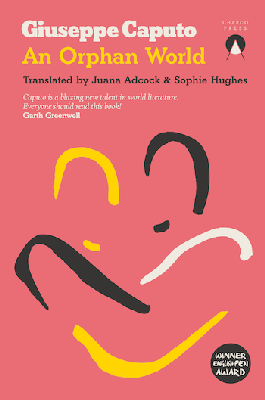
An Orphan World | Giuseppe Caputo
BUY BOOK
BUY BOOK
Recommended by Alexander Chee
“Giuseppe Caputo's An Orphan World, translated by Juana Adcock and Sophia Hughes, is one of those novels about losing yourself in sex in order to find yourself in sex, that is also a genuinely strange and loving story of a father and son struggling to survive abject poverty and terrifying homophobia in Columbia.”
About the Book
In a poverty-stricken neighbourhood wedged between the city and the sea, a father and son struggle to keep their heads above water. Rather than being discouraged by their difficulties and hardship, their response is to come up with increasingly bizarre and imaginative plans in order to get by. Even when a horrifying, macabre event rocks the neighborhood and the locals start to flee, father and son decide to stay put. What matters is staying together.
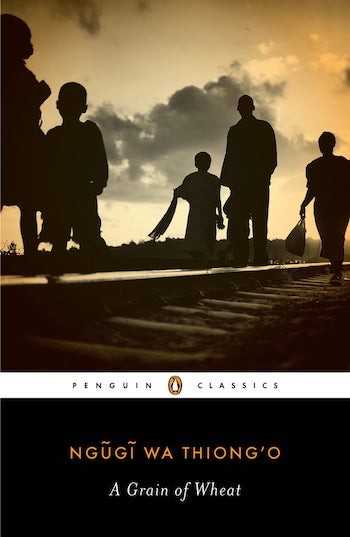
A Grain of Wheat | Ngũgĩ wa Thiong'o
BUY BOOK
BUY BOOK
Recommended by Ken Chen
“A Grain of Wheat is Ngugi's novel about the so-called Mau Mau Revolt in Kenya, where the British killed hundreds of thousands of people and put half the population in concentration camps. As a story, A Grain of Wheat is actually an addictive page-turner. While this is a social realist narrative, one where the woman comes to represent the motherland, there is a surprising sense of irony, in particular when Ngugi writes in the register of the British characters. Similarly, the revolutionary hero who is positioned as the savior is also revealed as a psychopath, part of the novel's structural critique that under colonial conditions, there is no way to avoid complicity.”
About the Book
Set in the wake of the Mau Mau rebellion and on the cusp of Kenya's independence from Britain, A Grain of Wheat follows a group of villagers whose lives have been transformed by the 1952–1960 Emergency. At the center of it all is the reticent Mugo, the village's chosen hero and a man haunted by a terrible secret. As we learn of the villagers' tangled histories in a narrative interwoven with myth and peppered with allusions to real-life leaders, including Jomo Kenyatta, a masterly story unfolds in which compromises are forced, friendships are betrayed, and loves are tested.
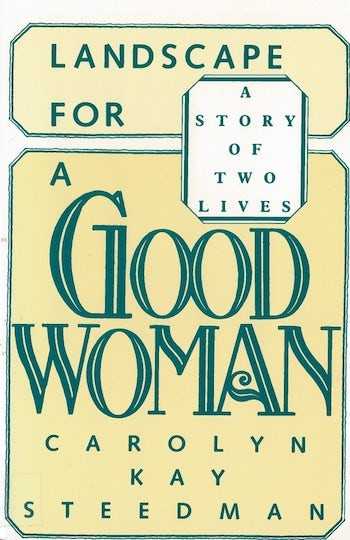
Landscape for a Good Woman | Carolyn Kay Steedman
BUY BOOK
BUY BOOK
Recommended by Ken Chen
“The British Marxist feminist Carolyn Kay Steedman wanted to write about certain political issues—the counter-intuitive absence of the patriarchy and the similarly counter-intuititive lure of conservatism for the working class—but she found that she could only do so by writing about her own life. This forgotten classic is perhaps the best intellectual book not written by Saidiya Hartman at combining the personal/literary register with a more dispassionate analysis of class, gender, and structures of power. Intellectually uncompromising, Steedman writes with an infallible memory and a surprising, psychoanalytic sense of myth and fairy tale.”
About the Book
Intricate and inspiring, this unusual book uses autobiographical elements to depict a mother and her daughter and two working-class childhoods (Burnley in the 1920s, South London in the 1950s) and to find a place for their stories in history and politics, in psychoanalysis and feminism.
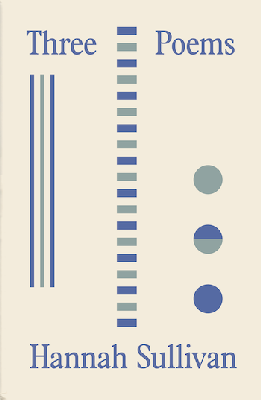
Three Poems | Hannah Sullivan
BUY BOOK
BUY BOOK
Recommended by Rachel Ossip
“Sullivan’s poetry is undeniably contemporary, but with an attention to music, form, and meter that feels rare today. I mean, when was the last time you read rhyming poetry that wasn’t in a birthday card (and, more impressively, didn’t feel stuffy or sentimental)? Don’t worry if that’s not your thing; not all of it rhymes. But even you rhyme-haters out there might be enticed by these: after all, who couldn’t love a rhyme that remains linguistically stunning while skewering San Francisco tech bros “looking for authentic Mission dives”? (“Angel investors underwrite it all; / The ****-stained can, the iPhone afterlives.”)”
About the Book
“You, Very Young in New York” paints the portrait of a great American city, paying close attention to grand designs as well as local details, and coalescing in a wry and tender study of romantic possibility, disappointment, and the obduracy of innocence. “Repeat Until Time” shifts the scene to California and combines a poetic essay on the nature of repetition with an enquiry into pattern-making of a personal as well as a philosophical kind. “The Sandpit After Rain” explores the birth of a child and death of a father with exacting clarity.
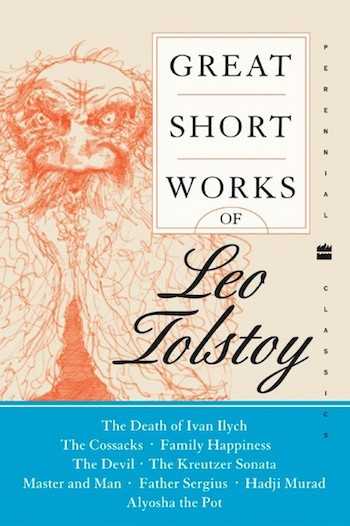
Great Short Works of Leo Tolstoy | Leo Tolstoy
BUY BOOK
BUY BOOK
Recommended by Dayna Tortorici
“I can't believe I waited so long to read Tolstoy's short fiction, namely ‘The Death of Ivan Ilych,’ ‘The Kreutzer Sonata,’ ‘Master and Man,’ and ‘Alyosha the Pot.’ Don't be like me! Read them now!”
About the Book
Of all Russian writers Leo Tolstoy is probably the best known to the Western world, largely because of War and Peace, his epic in prose, and Anna Karenina, one of the most splendid novels in any language. But during his long lifetime Tolstoy also wrote enough shorter works to fill many volumes. Here reprinted in one volume are his eight finest short novels, together with “Alyosha the Pot,” the little tale that Prince Mirsky described as “a masterpiece of rare perfection.”
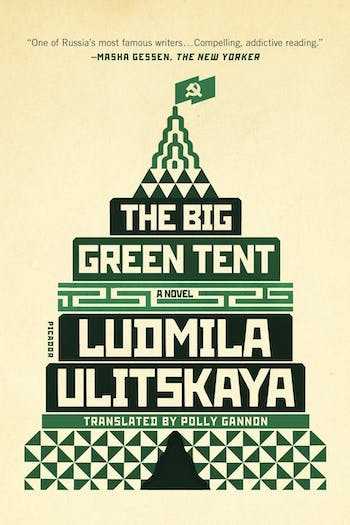
The Big Green Tent | Ludmila Ulitskaya
BUY BOOK
BUY BOOK
Recommended by Rachel Ossip
“One of my gnawing anxieties is that 'the power of literature' is too often overstated by those of us who traffic in it. Ulitskaya’s novel provides a useful reminder that, at certain times and in certain places (such as post-Stalin Soviet Union), this would not have been a concern; it was known that literature was deadly serious. The friendship of three young boys across four decades provides the through-line of The Big Green Tent, enlivened by their various intimacies, the joy they find in art and music, and the great risks they take just to traffic in literature.”
About the Book
With epic breadth and intimate detail, Ludmila Ulitskaya's remarkable work tells the story of three school friends who meet in Moscow in the 1950s and go on to embody the heroism, folly, compromise, and hope of the Soviet dissident experience. These three boys-—an orphaned poet, a gifted yet fragile pianist, and a budding photographer with a talent for collecting secrets—struggle to reach adulthood in a society where their heroes have been censored and exiled.
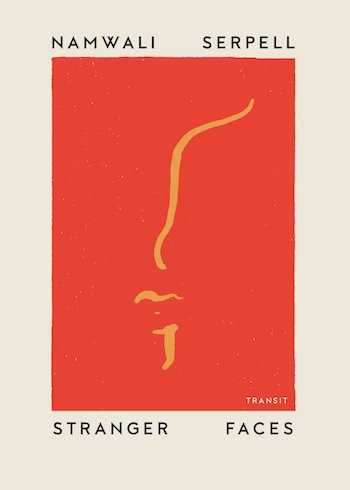
Stranger Faces | Namwali Serpell
BUY BOOK
BUY BOOK
Recommended by Hannah Zeavin
“Earlier this year I asked Twitter (who else) what were the best book-length essays. On this rare occasion, Twitter didn’t disappoint. I’ve made my way through a small fraction of all the books suggested, but my favorite remains Namwali Serpell’s Stranger Faces, which I love down to the syntactical level. Written for Transit Books’ Undelivered Lecture series (all fantastic), Serpell takes us away from “The Ideal Face”—site of truth, relationality, and beauty—to those titular stranger faces. From the Elephant Man to Psycho to the emoji, Serpell offers a theory and reading of their uncanny likeness, their doublings, their meanings. Along the way, Serpell quietly provides a correction to our pervasive cultural emphasis on empathy. For as she argues, via the stranger face, it is precisely in granting humanity to the other that we know how to humiliate them.”
About the Book
If evolutionary biologists, ethical philosophers, and social media gurus are to be believed, the face is the basis for what we call humanity. The face is considered the source of identity, truth, beauty, authenticity, and empathy. It underlies our ideas about what constitutes a human, how we relate emotionally, what is pleasing to the eye, and how we ought to treat each other. But all of this rests on a specific image of the face. We might call it the ideal face.
What about the strange face, the stranger's face, the face that thwarts recognition? What do we make of the face that rides the line of legibility? In a collection of speculative essays on a few such stranger faces—the disabled face, the racially ambiguous face, the digital face, the face of the dead—Namwali Serpell probes our contemporary mythology of the face. Stranger Faces imagines a new ethics based on the perverse pleasures we take in the very mutability of faces.
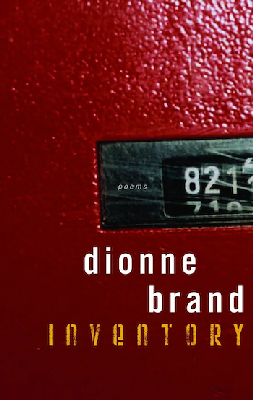
Inventory | Dionne Brand
BUY BOOK
BUY BOOK
Recommended by Doreen St. Félix
“The other day, they were posing a question: does the continent have an epic? It may have a lament: Inventory, the finest of Dionne Brand’s book-length poems.”
About the Book
In Dionne Brand’s incantatory, deeply engaged, beautifully crafted long poem, the question is asked, What would an inventory of the tumultuous early years of this new century have to account for? Alert to the upheavals that mark those years, Brand bears powerful witness to the seemingly unending wars, the ascendance of fundamentalisms, the nameless casualties that bloom out from near and distant streets. An inventory in form and substance, Brand’s poem reckons with the revolutionary songs left to fragment, the postmodern cities drowned and blistering, the devastation flickering across TV screens grown rhythmic and predictable. Inventory is an urgent and burning lamentation.
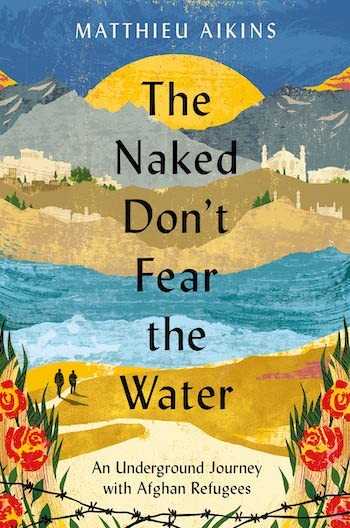
The Naked Don't Fear the Water | Matthieu Aikins
BUY BOOK
BUY BOOK
Recommended by Hari Kunzru
“This is an extraordinary narrative that took serious bravery to write. The author, a war correspondent, goes undercover to acompany his Afghan friend and former translator along the smuggler’s road from Afghanistan to Europe.”
About the Book
In 2016, a young Afghan driver and translator named Omar makes the heart-wrenching choice to flee his war-torn country, saying goodbye to Laila, the love of his life, without knowing when they might be reunited again. He is one of millions of refugees who leave their homes that year. Matthieu Aikins, a journalist living in Kabul, decides to follow his friend. In order to do so, he must leave his own passport and identity behind to go underground on the refugee trail with Omar. Their odyssey across land and sea from Afghanistan to Europe brings them face to face with the people at heart of the migration crisis: smugglers, cops, activists, and the men, women and children fleeing war in search of a better life. As setbacks and dangers mount for the two friends, Matthieu is also drawn into the escape plans of Omar's entire family, including Maryam, the matriarch who has fought ferociously for her children's survival.
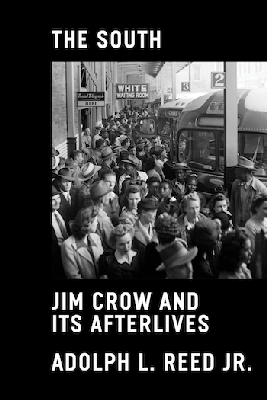
The South | Adolph L. Reed
BUY BOOK
BUY BOOK
Recommended by Hari Kunzru
“The author is a noted radical theorist, who often writes about the limits of race as a conceptual tool for understanding the American political scene. This is a short and nuanced memoir about how it felt to live under the Jim Crow system, and how it shaped the everyday reality of millions of Americans, black and white."
About the Book
The last generation of Americans with a living memory of Jim Crow will soon disappear. They leave behind a collective memory of segregation shaped increasingly by its horrors and heroic defeat but not a nuanced understanding of everyday life in Jim Crow America. In The South, Adolph L. Reed Jr.—New Orleanian, political scientist, and according to Cornel West, "the greatest democratic theorist of his generation"—takes up the urgent task of recounting the granular realities of life in the last decades of the Jim Crow South. Reed illuminates the multifaceted structures of the segregationist order. Through his personal history and political acumen, we see America's apartheid system from the ground up, not just its legal framework or systems of power, but the way these systems structured the day-to-day interactions, lives, and ambitions of ordinary working people. The South unravels the personal and political dimensions of the Jim Crow order, revealing the sources and objectives of this unstable regime, its contradictions and precarity, and the social order that would replace it.
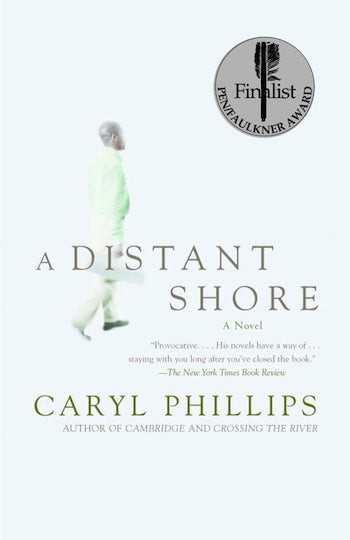
A Distant Shore | Caryl Phillips
BUY BOOK
BUY BOOK
Recommended by Ken Chen
“This deceptive, tricky and ultimately moving novel consists of a series of novellas whose joins are initially less obvious than they appear. What initially seems like a portrait of a depressed woman in a Little Englander town gradually widens into a story about race, the global south, migration, and the unforgivable past lives we accumulate and hide. Phillips is so anchored in character that his books are often as addictive and suspenseful as well-done prestige TV, and this firm storytelling base means he can perform wilder experiments in narrative—often jumping in time, eliding scenes, and abruptly changing point of view. He's one of the most interesting writers in terms of using narrative perspective as a provocation.”
About the Book
Dorothy is a retired schoolteacher who has recently moved to a housing estate in a small village. Solomon is a night-watchman, an immigrant from an unnamed country in Africa. Each is desperate for love. And yet each harbors secrets that may make attaining it impossible.
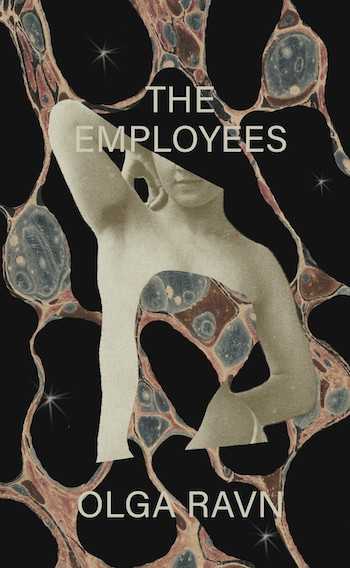
The Employees | Olga Ravn
BUY BOOK
BUY BOOK
Recommended by Jia Tolentino
“This was the book from 2022 that gave me the most singular reading experience—jarring, tender, awful, alien, beautiful. As soon as I finished I texted half a dozen friends (now that I’m thinking about it, I went for the ones who love Three-Body Trilogy and/or Fleur Jaeggy) and told them they needed to get it. The Employees is hard to describe—none of the characters are named, it’s written as a series of transcripts, but ‘Lydia Davis meets 2001: A Space Odyssey’ was my pitch to them, and now to you.”
About the Book
Funny and doom-drenched, The Employees chronicles the fate of the Six-Thousand Ship. The human and humanoid crew members complain about their daily tasks in a series of staff reports and memos. When the ship takes on a number of strange objects from the planet New Discovery, the crew becomes strangely and deeply attached to them, even as tensions boil toward mutiny, especially among the humanoids.
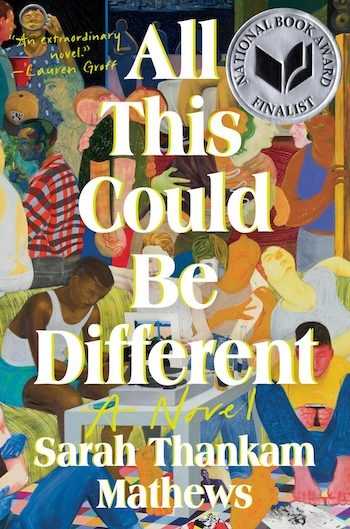
All This Could Be Different | Sarah Thankam Mathews
BUY BOOK
BUY BOOK
Recommended by Charlotte Shane
“Sorry to be That Person but I often don't trust things that are widely acclaimed, especially novels. And by the time you read this, Sarah Thankam Matthews's debut, after an avalanche of effusive reviews, might have won the National Book Award. (I hope it did; it deserves it.) I read it in a single Sunday sitting and felt renewed as a writer, a reader, and someone who longs for the world to be, well, different. It's a funny, wise, generous book about struggle. It made me cry a lot.”
About the Book
Graduating into the long maw of an American recession, Sneha is one of the fortunate ones. She’s moved to Milwaukee for an entry-level corporate job that, grueling as it may be, is the key that unlocks every door: she can pick up the tab at dinner with her new friend Tig, get her college buddy Thom hired alongside her, and send money to her parents back in India. She begins dating women—soon developing a burning crush on Marina, a beguiling and beautiful dancer who always seems just out of reach. But before long, trouble arrives. Painful secrets rear their heads; jobs go off the rails; evictions loom. Sneha struggles to be truly close and open with anybody, even as her friendships deepen, even as she throws herself headlong into a dizzying romance with Marina. It's then that Tig begins to draw up a radical solution to their problems, hoping to save them all.
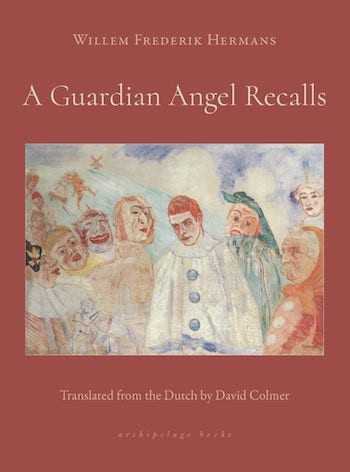
A Guardian Angel Recalls | Willem Frederik Hermans
BUY BOOK
BUY BOOK
Recommended by Jonathan Franzen
“Archipelago Books recently sent me a novel with an inauspicious title by a Dutch writer I hadn’t heard of. I decided to politely read five pages. Next thing I knew, I was a hundred pages in. The novel, translated by David Colmer, is set in the first days of Hitler’s invasion of Holland. The main character, speeding in his car to help a Jewish refugee flee the country, hits and kills a little girl and hides her body. The ensuing story is part thriller, part family novel, part metaphysical investigation, and also, unexpectedly, part comedy. I’ve since learned that Hermans is considered one of the great Dutch writers of the 20th century. A Guardian Angel Recalls will give you an idea why.”
About the Book
Alberegt, a frenzied and lovelorn public prosecutor, speeds through Hook of Holland in his black Renault on May 9, 1940—the eve of the German invasion of the Netherlands. Guiding his every move is a guardian angel. With unflappable patience, the angel flits from the hood of the Renault to the rim of his windswept hat, determined to quell his every anxiety and doubt. The angel’s momentary distraction, however, sets off a chain of events that spins a nightmarish web.
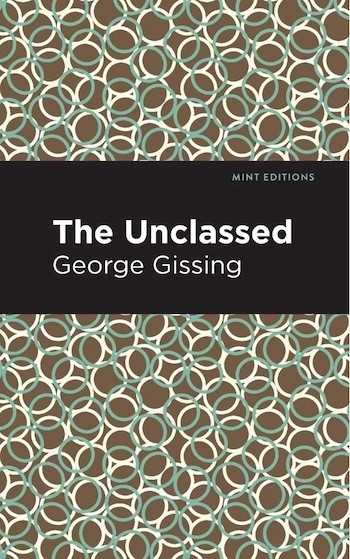
The Unclassed | George Gissing
BUY BOOK
BUY BOOK
Recommended by Charlotte Shane
“I have the impression that The Unclassed doesn’t command a lot of respect in comparison to George Gissing’s later novels, but I found it more memorable and moving than New Grub Street, which is admittedly more polished. I can’t believe this sensitive, feminist, prostitute-loving man died from such a stupid thing (catching a chill on a winter walk).”
About the Book
Struggling to make it as a lower-class Londoner, Osmond Waymark finds himself unable to give up his literary ambitions. Desperate and lonely, he strikes up a friendship with Julian Casti, a similarly down-and-out young writer who suffers from both poverty and xenophobia as the son of Italian immigrants. When Julian agrees to an ill-advised marriage to Harriet Smales, a rude young woman, he inadvertently exposes Osmond to her manipulative and vindictive ways. As Osmond falls for Ida Starr, a prostitute’s daughter driven to rise above her circumstances, he unwittingly angers Harriet, whose friend Maud is secretly in love with him. In a shocking turn of events, Harriet conspires to get Ida arrested for theft, then maneuvers to get Osmond into the arms of Maud. The two become engaged, leaving Ida—the novel’s heroine—to rely on her wits and survival instinct to not only prove her innocence, but win back the man she loves.
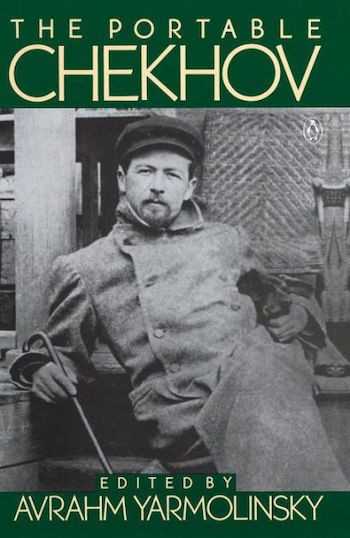
The Portable Chekhov | Anton Chekhov
BUY BOOK
BUY BOOK
Recommended by Dayna Tortorici
“Full disclosure, this recommendation is a concession. What you should really buy is the thirteen-volume Tales of Chekhov, translated by Constance Garnett and published by Ecco, that includes all his published novellas and stories. However, that set can really put you back: on eBay it's $200 or more, and the sets are not always complete. More sensibly sized and at a much better price, this Portable Chekhov will tide you over. Everyone should read these stories at least once before they die: ‘The Kiss,’ ‘The Name-Day Party,’ ‘In the Cart,’ ‘Gooseberries,’ ‘About Love,’ ‘The Darling,’ and ‘The Lady With the Pet Dog.’ The novellas ‘An Anonymous Story,’ ‘A Dreary Story,’ and ‘Three Years’ are unfortunately not in here, but you can probably find them online—or maybe by the time you finish this book, you'll be ready to go in on the set.”
About the Book
Edited and with an introduction by Avrahm Yarmolinsky, The Portable Chekhov presents twenty-eight of Chekhov’s best stories, chosen as particularly representative of his many-sided portrayal of the human comedy—including “The Kiss,” “The Darling,” and “In the Ravine”—as well as two complete plays; The Boor, an example of Chekhov’s earlier dramatic work, and The Cherry Orchard, his last and finest play. In addition, this volume includes a selection of letters, candidly revealing of Chekhov’s impassioned convictions on life and art, his high aspirations, his marriage, and his omnipresent compassion.
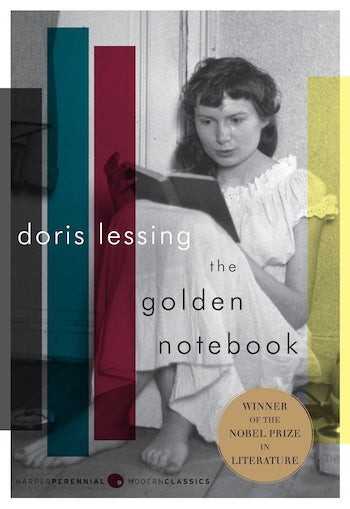
The Golden Notebook | Doris Lessing
BUY BOOK
BUY BOOK
Recommended by Tess Edmonson
“Anna Wulf, Lessing’s protagonist, maintains four differently colored journals: red for her political activity in the British Communist Party; blue for her dreams, feelings, and psychoanalysis; black for her portrayal of young adulthood in colonized Southern Rhodesia; yellow for a novelized account of a failed love affair. The powerful fantasy of an unintegrated life—a life where work, sex, writing, children, political organizing, and friendships can be independently managed and maintained—brings Anna close to total psychic dissolution.”
About the Book
Anna is a writer, author of one very successful novel, who now keeps four notebooks. In one, with a black cover, she reviews the African experience of her earlier years. In a red one she records her political life, her disillusionment with communism. In a yellow one she writes a novel in which the heroine relives part of her own experience. And in a blue one she keeps a personal diary. Finally, in love with an American writer and threatened with insanity, Anna resolves to bring the threads of all four books together in a golden notebook. Lessing's best-known and most influential novel, The Golden Notebook retains its extraordinary power and relevance decades after its initial publication.
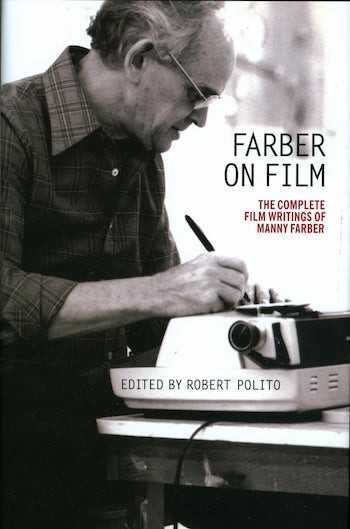
Farber on Film: The Complete Film Writings of Manny Farber | Manny Farber
BUY BOOK
BUY BOOK
Recommended by Mark Krotov
“I don’t know why I don’t own Negative Space, which I gather is the better collection, but I don’t, so I’m recommending Farber on Film. The book is too heavy, the font is too small, the index is somehow too comprehensive, but every maddening, paradoxical, occasionally self-undermining assessment sees more on the screen (and provokes more reflection from the reader) than almost any other film criticism I’ve read. Here, for example, is Farber on Bullitt: ‘But in a long, near-silent and very good stretch in U.C. Hospital, which is almost excessive in the way it sticks like plaster to the mundaneness of the place, the movie hits into about seventeen verities: faces looking out as though across the great divide of 20th-century lousiness.’ Because of the tiny font you get like a dozen of these mega-genius sentences per page.”
About the Book
Farber was an early discoverer of many filmmakers later acclaimed as American masters: Val Lewton, Preston Sturges, Samuel Fuller, Raoul Walsh, Anthony Mann. A prodigiously gifted painter himself, he brought to his writing an artist's eye for what was on the screen. Alert to any filmmaker, no matter how marginal or unsung, who was “doing go-for-broke art and not caring what comes of it,” he was uncompromising in his contempt for pretension and trendiness, for, as he put it, directors who “pin the viewer to the wall and slug him with wet towels of artiness and significance.”
The excitement of his criticism, however, has less to do with his particular likes and dislikes than with the quality of attention he paid to each film as it unfolds, to the “chains of rapport and intimate knowledge” in its moment-to-moment reality. To transcribe that knowledge he created a prose that, in Robert Polito's words, allows for “oddities, muddles, crises, contradictions, dead ends, multiple alternatives, and divergent vistas.” The result is critical essays that are themselves works of art.
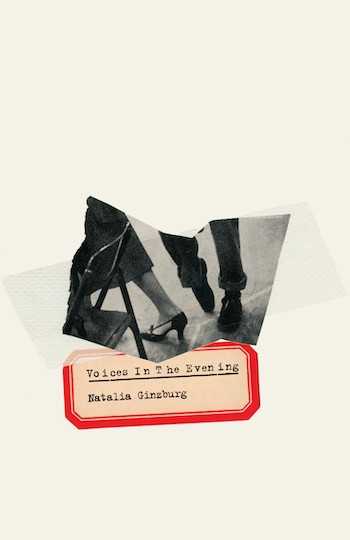
Voices in the Evening | Natalia Ginzburg
BUY BOOK
BUY BOOK
Recommended by Sarah Resnick
“Natalia Ginzburg, in addition to writing twelve books and two plays, struggled against anti-Semitic laws, mourned a husband killed by the fascists, and, in her sixties, took up a career in Italian politics. What a life! Her novel Voices in the Evening, set in the aftermath of WWII, is a story of tragedy, comedy, gossip, romance, and life at the small-town scale of a Fellini film. ‘No, she is not a spy. She is merely a stupid woman.’ ‘He related what Purillo was like, how he washed and ate and made love with the servant, and how he did his exercises in the morning in shorts of black webbing.’ ‘In these months, I have driven a great many of my thoughts underground. I have dug out a little grave for them.’ ‘Isn’t your granny fed up with reading all those novels?’”
About the Book
After WWII, a small Italian town struggles to emerge from under the thumb of Fascism. With wit, tenderness, and irony, Elsa, the novel's narrator, weaves a rich tapestry of provincial Italian life: two generations of neighbors and relatives, their gossip and shattered dreams, their heartbreaks and struggles to find happiness. Elsa wants to imagine a future for herself, free from the expectations and burdens of her town's history, but the weight of the past will always prove unbearable, insistently posing the question: "Why has everything been ruined?"

Her Smoke Rose Up Forever | James Tiptree, Jr.
BUY BOOK
BUY BOOK
Recommended by Max Read
“Alice Sheldon, the psychologist, artist, and former CIA agent who wrote under the pseudonym James Tiptree, Jr., was one of the great sci-fi authors of the 20th century: stylish, compelling, uncompromising. Somehow, even though she has an award named after her—for ‘science fiction or fantasy that explores and expands the roles of women and men’—she’s too little read by mainstream readers; she should be as well known outside sci-fi as Ursula K. LeGuin and Octavia Butler. Her Smoke Rose Up Forever collects her best stories into a single volume.”
About the Book
Her Smoke Rose Up Forever collects eighteen brilliant short stories from a luminary of the science-fiction genre, James Tiptree, Jr. This updated edition is the quintessential Tiptree collection and contains revisions from the author's original notes. Tiptree's fiction reflects the darkly complex world its author inhabited: exploring the alien among us; the unreliability of perception; love, sex, and death; and humanity's place in a vast, cold universe.
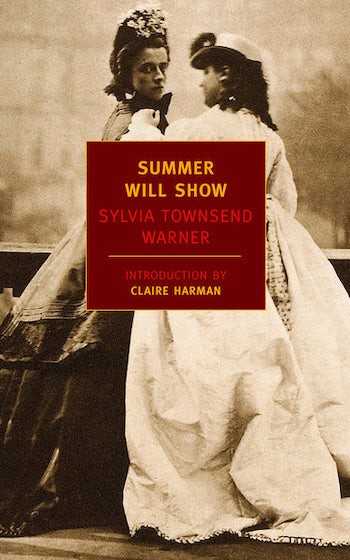
Summer Will Show | Sylvia Townsend Warner
BUY BOOK
BUY BOOK
Recommended by Hannah Zeavin
“You would be forgiven for thinking, from its first pages, that Summer Will Show is some novel set on an estate where bad things happen to rich, if not bad, people. And they do: two children die in quick succession, a husband is off with another woman. And suddenly, the reproductive labor that has occupied our protagonist, Sophia Willoughby, no longer quite exists. After all, although she is head of her estate, she employs many, many workers who carry out its actual management. And so what does our protagonist do? She goes to get her husband back, so that she may start reproducing once more. Yet, rather than using the change of scene to have new clothes made and secure her husband once more, or not only, she falls in love with none other than her husband’s mistress Minna. I should now mention that, although the book was written in the interwar period, for Sophia the year is 1848 and her husband has traipsed off to Paris. I think this queer romance is one of the best novels to imagine the not-quite-revolution, centering on a fictional account of the June Days uprising.”
About the Book
Sophia Willoughby, a young Englishwoman from an aristocratic family and a person of strong opinions and even stronger will, has packed her cheating husband off to Paris. He can have his tawdry mistress. She intends to devote herself to the serious business of raising her two children in proper Tory fashion. Then tragedy strikes: the children die, and Sophia, in despair, finds her way to Paris, arriving just in time for the revolution of 1848. Before long she has formed the unlikeliest of close relations with Minna, her husband's sometime mistress, whose dramatic recitations, based on her hair-raising childhood in czarist Russia, electrify audiences in drawing rooms and on the street alike. Minna, “magnanimous and unscrupulous, fickle, ardent, and interfering,” leads Sophia on a wild adventure through bohemian and revolutionary Paris, in a story that reaches an unforgettable conclusion amidst the bullets, bloodshed, and hope of the barricades.
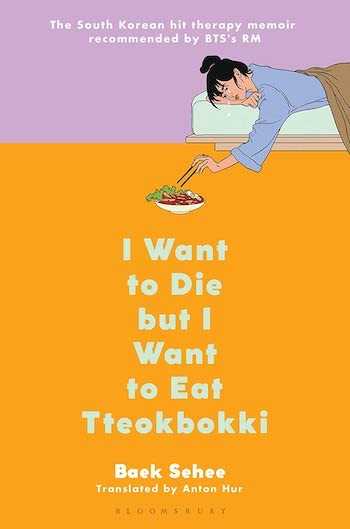
I Want to Die But I Want to Eat Tteokbokki | Baek Sehee
BUY BOOK
BUY BOOK
Recommended by Alexander Chee
“I Want To Die But I Want To Eat Tteokbokki, translated by Anton Hur, by Baek Sehee is a memoir of depression. The title is playful about dark things, perhaps more so in the title than the memoir itself, but I appreciated this memoir about depression from South Korea in part for the way we do rarely hear about depression and mental health from Asians and Asian Americans. ”
About the Book
Baek Sehee is a successful young social media director at a publishing house when she begins seeing a psychiatrist about her—what to call it?—depression? She feels persistently low, anxious, endlessly self-doubting, but also highly judgmental of others. She hides her feelings well at work and with friends, performing the calmness her lifestyle demands. The effort is exhausting, overwhelming, and keeps her from forming deep relationships. This can't be normal. But if she's so hopeless, why can she always summon a yen for her favorite street food: the hot, spicy rice cake, tteokbokki? Is this just what life is like?
Recording her dialogues with her psychiatrist over a twelve-week period, and expanding on each session with her own reflective micro-essays, Baek begins to disentangle the feedback loops, knee-jerk reactions, and harmful behaviors that keep her locked in a cycle of self-abuse. Part memoir, part self-help book, I Want to Die But I Want to Eat Tteokbokki is a book to keep close and to reach for in times of darkness.
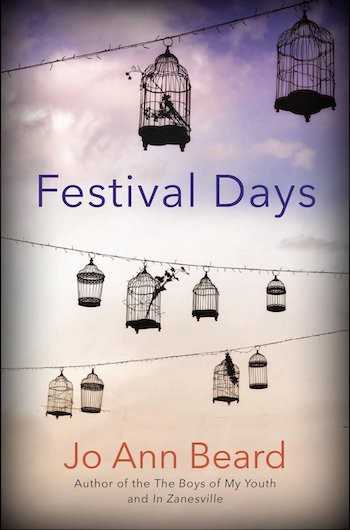
Festival Days | Jo Ann Beard
BUY BOOK
BUY BOOK
Recommended by Jonathan Franzen
“The most exciting new book I’ve read in the past year is Jo Ann Beard’s Festival Days. The book is a knockout—a collection of nonfiction narratives that read like short stories, plus one short story that makes you wonder if it too is nonfiction. Masterly sentence by sentence, entirely original in method, the pieces are full of death and the threat of it, but their effect is the opposite of funereal. Beard’s wry voice and her clear-eyed compassion make her the best sort of company.”
About the Book
In these nine pieces, Jo Ann Beard captures both the small, luminous moments of daily existence and those instants when life and death hang in the balance, ranging from the death of a beloved dog to a relentlessly readable account of a New York artist trapped inside a burning building, as well as two triumphant, celebrated pieces of short fiction. Here is an unforgettable collection destined to be embraced and debated by readers and writers, teachers and students. Anchored by the title piece—a searing journey through India that brings into focus questions of mortality and love—Festival Days presents Beard at the height of her powers, using her flawless prose to reveal all that is tender and timeless beneath the way we live now.
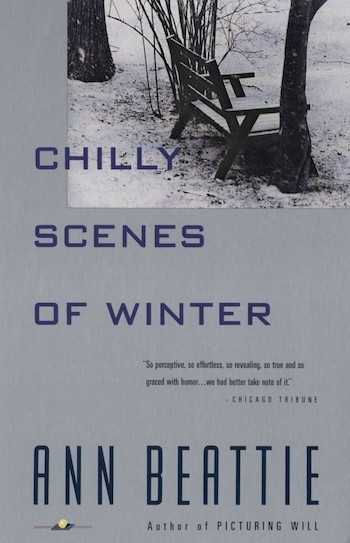
Chilly Scenes of Winter | Ann Beattie
BUY BOOK
BUY BOOK
Recommended by Lisa Borst
“I guess this is the kind of book—lifelike, quiet, attentive to the shabbiness of deindustrial-era office parks and themed restaurants—that gets called "Kmart realism," but it's a sweeter and more romantic novel than the term might suggest, and kinder to its characters, who can't decide if they're sad because of love or because they're just slightly too young to have experienced the counterculture. A note: I don't usually subscribe to the theory that a reading experience should match up to a book's setting, but this is 100% a book for reading in the winter or fall. ”
About the Book
This is the story of a love-smitten Charles; his friend Sam, the Phi Beta Kappa and former coat salesman; and Charles' mother, who spends a lot of time in the bathtub feeling depressed.
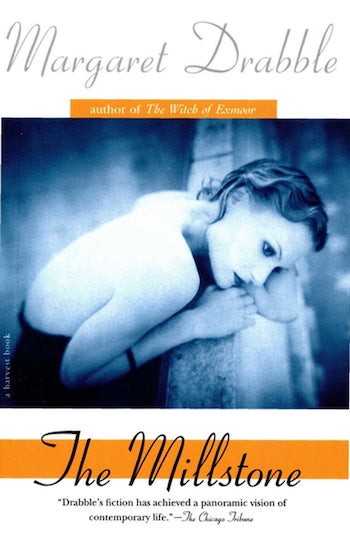
The Millstone | Margaret Drabble
BUY BOOK
BUY BOOK
Recommended by Nicole Lipman
“One of my favorite entries in the "under-read twentieth-century books about sharp young women" genre (my favorite genre).”
About the Book
Margaret Drabble’s affecting novel is set in London during the 1960s. Rosamund Stacey is young and inexperienced at a time when sexual liberation is well on its way. She conceals her ignorance beneath a show of independence, and becomes pregnant as a result of a one night stand.
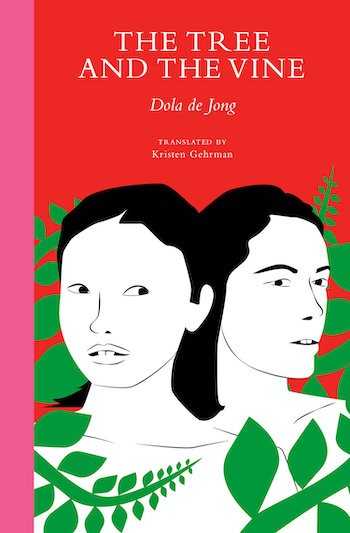
The Tree and the Vine | Dola de Jong
BUY BOOK
BUY BOOK
Recommended by Rachel Ossip
“Though initially rejected as 'unpublishable' for its bluntly lesbian characters, Dola de Jong’s 1954 novel is not the salacious tale such objections might signal. Instead, it is a brooding, subtle story of the fraught relationship between two codependent roommates, Erica and Bea, in interwar Amsterdam. As Erica jumps from woman to woman, Bea is tormented by her own ambivalence, vacillating between her deep conservatism and the intensity of her obsession with Erica, all while the dark creep of history lurks in the wings.”
About the Book
When Bea meets Erica at the home of a mutual friend, this chance encounter sets the stage for the story of two women torn between desire and taboo in the years leading up to the Nazi occupation of Amsterdam. Erica, a reckless young journalist, pursues passionate but abusive affairs with different women. Bea, a reserved secretary, grows increasingly obsessed with Erica, yet denial and shame keep her from recognizing her attraction. Only Bea's discovery that Erica is half-Jewish and a member of the Dutch resistance—and thus in danger—brings her closer to accepting her own feelings.
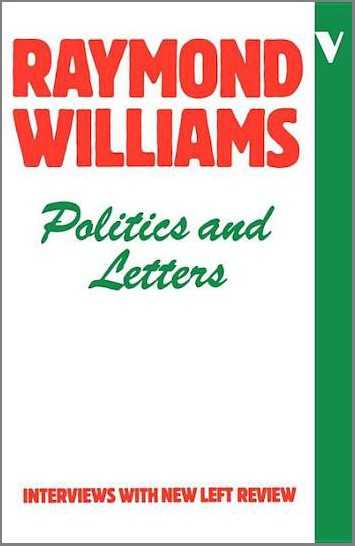
Politics and Letters: Interviews with New Left Review | Raymond Williams
BUY BOOK
BUY BOOK
Recommended by Mark Krotov
“The book-length interview is an underrated literary genre, and this is the best example of the form I’ve encountered. In 1977 and 1978, Perry Anderson, Anthony Barnett, and Francis Mulhern spent hours and days interrogating, prodding, examining, and second-guessing Raymond Williams about his life and work. That sounds confrontational, and I suppose it is at times, but the conversations are suffused with deep reverence: this is a sustained encounter with a legend, and Williams himself is characteristically generous in response. The NLR editors put it best in their foreword: ‘Interviews—perhaps especially in intellectual matters—are often . . . uncritical, since real critical inquiries presuppose the ability and willingness to argue alternatives. Where possible, New Left Review has tried to develop another model of interview allowing for statement and argument on both sides. This volume follows that practice. Its scale, however, is unusual. That is due at once to our judgment of the quality and importance of Williams’s work—fully the equal and in some crucial respects the superior of its counterparts elsewhere in Europe—and to the unreserved willingness of Williams himself, which can have few precedents, to respond to the questions, criticisms, and counter-arguments that were put to him.’”
About the Book
Raymond Williams has made a central contribution to the culture of the Left in the English-speaking world. Politics and Letters is a volume of interviews with Williams, conducted by members of the New Left Review editorial committee, that is designed to bring into clear focus the major theoretical and political issues posed by his work. Ranging across his biographical development, the evolution of his cultural theory and literary criticism, his work on dramatic forms and his fiction, the volume concludes with an exploration of Williams's positions on British and international politics.
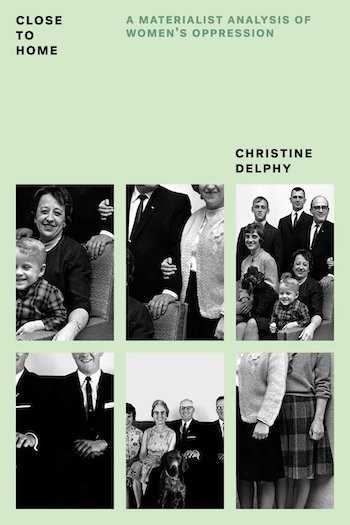
Close to Home: A Materialist Analysis of Women's Oppression | Christine Delphy
BUY BOOK
BUY BOOK
Recommended by Malcolm Harris
“This recent reissue from Verso of this 1970 collection by French feminist Christine Delphy mostly flew under the radar, but it’s an invaluable application of the Marxist method to the question of gender oppression, with conclusions that are still useful today. Delphy not only echoes Marx’s politics, she shares a lot of his style, including withering attacks on her ideological rivals within the feminist movement.”
About the Book
Close to Home is the classic study of family, patriarchal ideologies, and the politics and strategy of women's liberation. On the table in this forceful and provocative debate are questions of whether men can be feminists, whether “bourgeois” and heterosexual women are retrogressive members of the women's movement, and how best to struggle against the multiple oppressions women endure.
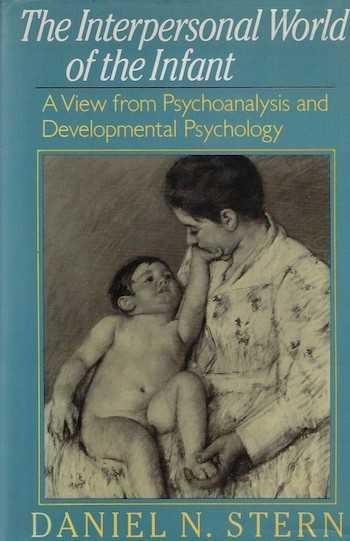
The Interpersonal World of the Infant | Daniel N. Stern
BUY BOOK
BUY BOOK
Recommended by Mark Greif
“A classic book from the greatest of the last generation of “baby watchers,” Stern observed the mother-child behavior he named "attunement," as how humans learn both distinction and connection.”
About the Book
Challenging the traditional developmental sequence as well as the idea that issues of attachment, dependency, and trust are confined to infancy, Stern integrates clinical and experimental science to support his revolutionizing vision of the social and emotional life of the youngest children, which has had spiraling implications for theory, research, and practice. A new introduction by the author celebrates this first paperback edition.
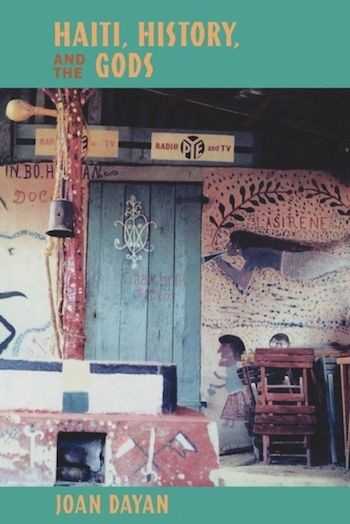
Haiti, History, and the Gods | Joan Dayan
BUY BOOK
BUY BOOK
Recommended by Ken Chen
“The Haitian Revolution was a world historical event. Despite the fact that, say, the Louisiana Purchase and therefore the US's continental borders would not have happened without it, this moment of liberation has also been relegated to amnesia in this country. Joan Dayan began writing her remarkable study, Haiti, History, and the Gods partly to understand what it meant for some of the historical figures from the Revolution to discover a second life as gods. What emerges is a careful study of voudoun as a syncretist ideology whose seemingly mystical figures actually symbolize the underlying politics of the slave trade: the idea of the zombie, for example, as a figure who dies and comes back to life as another person's servant, makes more sense when thinking of the Middle Passage. This delicately written but gothic and actually somewhat experimental book, which combines personal narrative, history, and literary criticism, is one of the best written literary studies I've read. ”
About the Book
In Haiti, History, and the Gods, Joan Dayan charts the cultural imagination of Haiti not only by reconstructing the island's history but by highlighting ambiguities and complexities that have been ignored. She investigates the confrontational space in which Haiti is created and recreated in fiction and fact, text and ritual, discourse and practice. Dayan's ambitious project is a research tour de force that gives human dimensions to this eighteenth-century French colony and provides a template for understanding the Haiti of today.
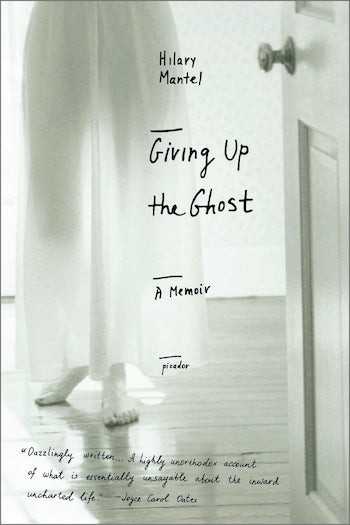
Giving Up the Ghost | Hilary Mantel
BUY BOOK
BUY BOOK
Recommended by Jane Hu
“Mantel's painfully beautiful memoir about the ongoing misdiagnoses for her severe endometriosis. The memoir also gives insight into Mantel's origin story as a writer of fiction.”
About the Book
In postwar rural England, Hilary Mantel grew up convinced that the most extraordinary feats were within her grasp. But at nineteen, she became ill. Through years of misdiagnosis, she suffered patronizing psychiatric treatment and destructive surgery that left her without hope of children. Beset by pain and sadness, she decided to “write herself into being”—one novel after another.
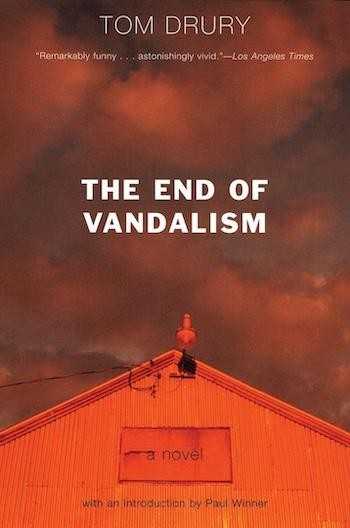
The End of Vandalism | Tom Drury
BUY BOOK
BUY BOOK
Recommended by Lisa Borst
“It’s hard to succinctly describe the humane and low-key charm of The End of Vandalism, but here’s the moment where the novel really took flight for me: ‘When Albert was five or six years old, he got mad at Claude and Marietta and decided to move out to the woods behind the Robeshaw farm. He took a can of beans, a can opener, a fork, and [a book] . . . He read the whole thing and then he was hungry, and he managed to open the can and begin eating the beans. But when he came upon the little cube of pork in the beans, he didn't know what it was, and it scared him, and he ran crying for home.’”
About the Book
Welcome to Grouse County—a fictional Midwest that is at once familiar and amusingly eccentric—where a thief vacuums the church before stealing the chalice, a lonely woman paints her toenails in a drafty farmhouse, and a sleepless man watches his restless bride scatter their bills beneath the stars. At the heart of The End of Vandalism is an unforgettable love triangle set off by a crime: Sheriff Dan Norman arrests Tiny Darling for vandalizing an anti-vandalism dance and then marries the culprit's ex-wife Louise. So Tiny loses Louise, Louise loses her sense of self, and the three find themselves on an epic journey.
At turns hilarious and heart-breaking, The End of Vandalism is a radiant novel about the beauty and ache of modern life.
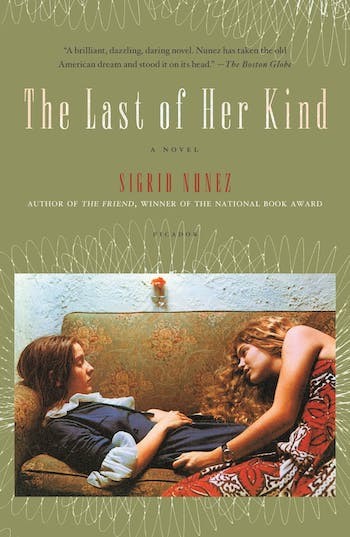
The Last of Her Kind | Sigrid Nunez
BUY BOOK
BUY BOOK
Recommended by Jane Hu
“Two girls—one rich, one poor—meet as roomates at Barnard during the late 1960s. Drawn from Nunez’s own experience of this scene at the time, this book offers painful insights on female friendship, envy, and class resentment.”
About the Book
Sigrid Nunez’s The Last of Her Kind introduces two women who meet as freshmen on the Columbia campus in 1968. Georgette George does not know what to make of her brilliant, idealistic roommate, Ann Drayton, and her obsessive disdain for the ruling class into which she was born. She is mortified by Ann’s romanticization of the underprivileged class, which Georgette herself is hoping college will enable her to escape. After the violent fight that ends their friendship, Georgette wants only to forget Ann and to turn her attention to the troubled runaway kid sister who has reappeared after years on the road. Then, in 1976, Ann is convicted of murder. At first, Ann's fate appears to be the inevitable outcome of her belief in the moral imperative to “make justice” in a world where “there are no innocent white people.” But, searching for answers to the riddle of this friend of her youth, Georgette finds more complicated and mysterious forces at work.
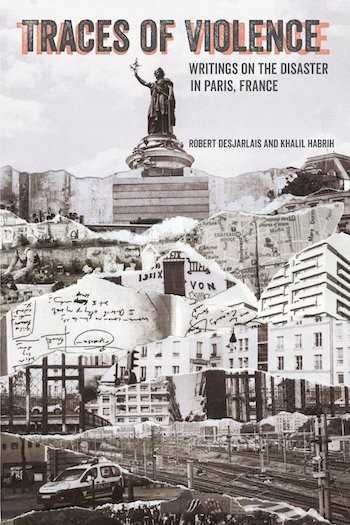
Traces of Violence: Writings on the Disaster in Paris, France | Robert R. Desjarlais & Khalil Habrih
BUY BOOK
BUY BOOK
Recommended by Elias Rodriques
“A dialogic account of policing in Paris after the disaster, haunting in its prose, life affirming in its commitment to collaboration.”
About the Book
In this highly original work, Robert Desjarlais and Khalil Habrih present a dialogic account of the lingering effects of the terroristic attacks that occurred in Paris in November 2015. Situating the events within broader histories of state violence in metropolitan France and its colonial geographies, the authors interweave narrative accounts and photographs to explore a range of related phenomena: governmental and journalistic discourses on terrorism, the political work of archives, police and military apparatuses of control and anti-terror deterrence, the histories of wounds, and the haunting reverberations of violence in a plurality of lives and deaths. Traces of Violence is a moving work that aids our understanding of the afterlife of violence and offers an innovative example of collaborative writing across anthropology and sociology.
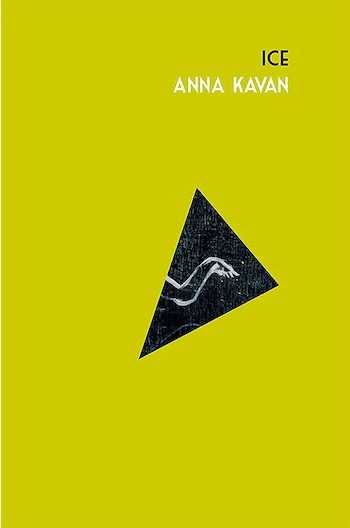
Ice | Anna Kavan
BUY BOOK
BUY BOOK
Recommended by Tess Edmonson
“Reading this book feels like dreaming: what’s real keeps changing. It's a climate apocalypse novel, sometimes (incorrectly, in my opinion) read as an analogy for Kavan’s decades-long heroin addiction. As a culture we don’t often let heroin users write books, especially if they’re women, which is a mistake. ”
About the Book
In a land devastated by war, a nameless narrator pursues an elusive white-haired woman in the clutches of a government official known only as “The Warden.” Neither will giver her up, but a freak ecological apocalypse is indifferent to their rival claims. As a terrifying wall of ice continues its incursion, freezing everything in its path, it seems that only the white-haired woman is truly resigned to the fate of the world. Ice is hailed as classic of science fiction and a definitive work of the slipstream genre.
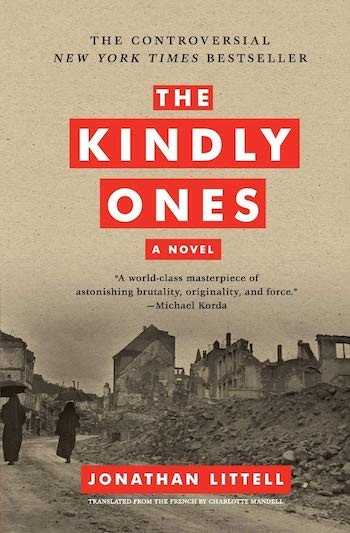
The Kindly Ones | Jonathan Littell
BUY BOOK
BUY BOOK
Recommended by Vladimir Sorokin
“Sixty years after the Second World War, Littell creates a lively, hypnotically attractive portrait of total evil, which takes control of a hero of that time like a virus, forcing the reader to make torturous choices, to suffer, to feel indignation, to be enchanted, and, finally, to resist.”
About the Book
A former Nazi officer, Dr. Maximilien Aue has reinvented himself, many years after the war, as a middle-class family man and factory owner in France. An intellectual steeped in philosophy, literature, and classical music, he is also a cold-blooded assassin and the consummate bureaucrat. Through the eyes of this cultivated yet monstrous man we experience in disturbingly precise detail the horrors of the Second World War and the Nazi genocide of the Jews. Eichmann, Himmler, Göring, Speer, Heydrich, Höss—even Hitler himself—play a role in Max’s story. An intense and hallucinatory historical epic, The Kindly Ones is also a morally challenging read. It holds a mirror up to humanity—and the reader cannot look away.
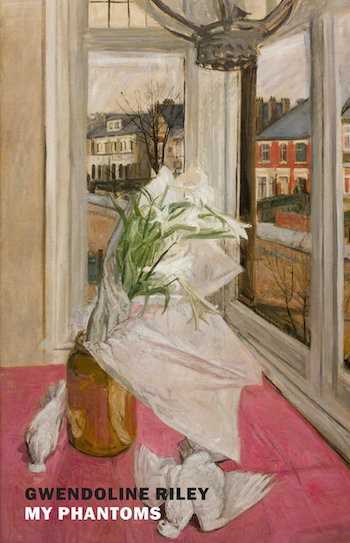
My Phantoms | Gwendoline Riley
BUY BOOK
BUY BOOK
Recommended by Sarah Resnick
“Nobody writes about the relationships between parents and children like Gwendoline Riley. She has an uncanny ability to suffuse the family home with the atmosphere of a killing jar. My Phantoms, her sixth novel, is about a fraught relationship between mother and daughter but it’s also a mystery: why is Hen unbearably self-defeating? Why does Bridget despise her mother as much as she does? Why are humans so strange? Best read with a Gordon’s and tonic in a plastic cup.”
About the Book
Helen Grant is a mystery to her daughter. An extrovert with few friends who has sought intimacy in the wrong places, a twice-divorced mother of two now living alone surrounded by her memories, Helen (known to her acquaintances as “Hen”) has always haunted Bridget. Now, Bridget is an academic in her forties. She sees Helen once a year, and considers the problem to be contained. As she looks back on their tumultuous relationship—the performances and small deceptions—she tries to reckon with the cruelties inflicted on both sides. But when Helen makes it clear that she wants more, it seems an old struggle will have to be replayed.
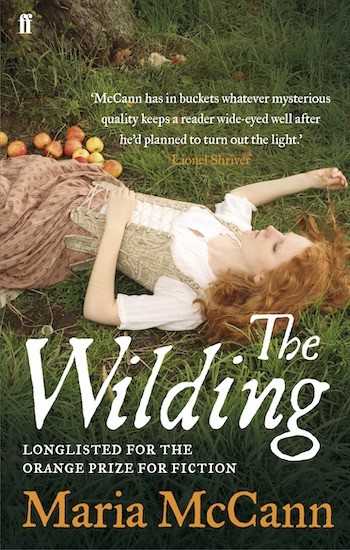
The Wildling | Maria McCann
BUY BOOK
BUY BOOK
Recommended by Charlotte Shane
“Witches. Family secrets. A hot 26-year-old virgin who makes hard cider in the 17th century. Maria McCann is a genius whose books, tragically, tend to come packaged in insultingly bad covers. You can turn to The Wilding after your annual reread of her masterpiece As Meat Loves Salt, when you're craving more of her male narrators.”
About the Book
A generation after the Civil War, Jonathan Dymond, a cider maker, has so far enjoyed a quiet life. But when he discovers a letter from his dying uncle, hinting an inheritance and revenge, he is determined to unravel the mystery in his family. Under the pretence of his cider business, Jonathan visits his newly widowed aunt and there meets her unruly servant girl, Tamar, who soon reveals that she has secrets of her own . . .
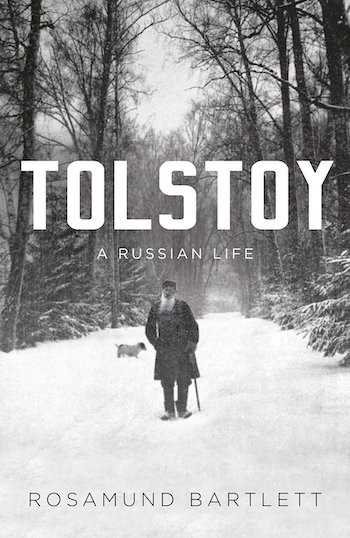
Tolstoy: A Russian Life | Rosamund Bartlett
BUY BOOK
BUY BOOK
Recommended by Dayna Tortorici
“Consider this an important entry in ‘you think you know, but you have no idea.’ Yes, you are familiar with Tolstoy the giant of Russian literature—but did you know about Tolstoy the inveterate gambler who fathered 13 children? Or Tolstoy the educational reformer who opened a school for peasants and created a reading primer, the multi-volume ABC, for which he retranslated all of Aesop's fables? Or Tolstoy the famine-relief champion who compiled and published some of the earliest census data about peasants? Or Tolstoy the sectarian religious thinker, whose philosophy of nonviolence would later influence Gandhi, Wittgenstein, and Martin Luther King Jr.? This prickly, sensitive, outrageously talented dude lived through one of the most fascinating periods of Russian history, and his life intersected with that history in often remarkable ways. A wonderful book for biography lovers, especially if you've recently read (or reread) his fiction and wondered how on earth he did it.”
About the Book
In this, the first biography of Tolstoy in more than twenty years, Rosamund Bartlett draws extensively on key Russian sources, including much fascinating material made available since the collapse of the Soviet Union. She sheds light on Tolstoy’s remarkable journey from callow youth to writer to prophet; discusses his troubled relationship with his wife, Sonya; and vividly evokes the Russian landscapes Tolstoy so loved and the turbulent times in which he lived. Above all, Bartett gives us an eloquent portrait of the brilliant, maddening, and contrary man who has once again been discovered by a new generation of readers.
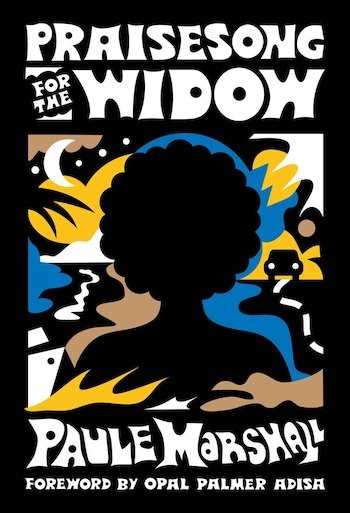
Praisesong for the Widow | Paule Marshall
BUY BOOK
BUY BOOK
Recommended by Elias Rodriques
“A lesser known gem from a pioneering Black Feminist, this novel's tale of a late-in-life cruise through the Caribbean surprises at each turn, and its prose is as lucid as it is beautiful.”
About the Book
Avey Johnson—a Black, middle-aged, middle-class widow given to hats, gloves, and pearls—has long since put behind her the Harlem of her childhood. Then on a cruise to the Caribbean with two friends, inspired by a troubling dream, she senses her life beginning to unravel—and in a panic packs her bag in the middle of the night and abandons her friends at the next port of call. The unexpected and beautiful adventure that follows provides Avey with the links to the culture and history she has so long disavowed.
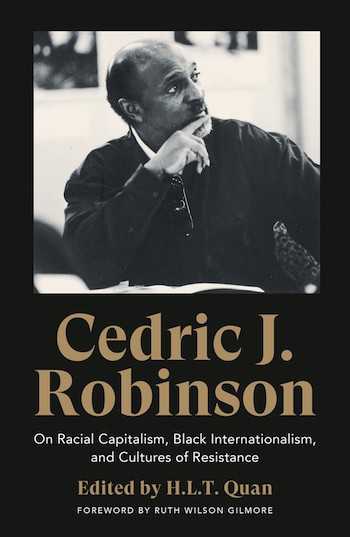
Cedric J. Robinson: On Racial Capitalism, Black Internationalism, and Cultures of Resistance | Cedric J. Robinson
BUY BOOK
BUY BOOK
Recommended by Malcolm Harris
“Best known for Black Marxism, this new collection of Robinson’s writing from H.L.T. Quan is an excellent introduction to his work. From a critique of race in Aristotle’s thought, to neocolonialism in the Philippines, to Eugene O’Neil, to blaxploitation, to ’90s California current events, On Racial Capitalism . . . reveals a staggeringly nimble mind. Also check out Joshua Myers’s new biography of Robinson, Cedric Robinson: The Time of the Black Radical Tradition.”
About the Book
Cedric J. Robinson is considered one of the doyens of Black Studies and a pioneer in study of the Black Radical Tradition. His works have been essential texts, deconstructing racial capitalism and inspiring insurgent movements from Ferguson to the West Bank. For the first time, Robinson's essays come together, spanning over four decades and reflective of his diverse interests in the interconnections between culture and politics, radical social theory and classic and modern political philosophy. Themes explored include Africa and Black internationalism, World politics, race and US Foreign Policy, representations of blackness in popular culture, and reflections on popular resistance to racial capitalism, white supremacy and more.
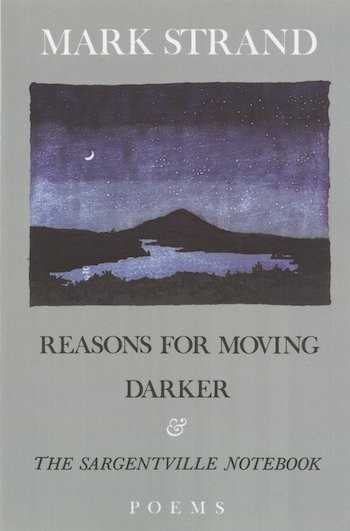
Reasons for Moving | Mark Strand
BUY BOOK
BUY BOOK
Recommended by Su Wu
“A few years ago, my partner Alma asked me if there was anyone I would like to meet whom I had not yet met, and I said without looking up from this book, I said Mark Strand. And Alma said, but didn’t you hear he died this morning? Then he told me that he actually knew the poet, a little. He was 15, working as a busboy and getting ready to run away from home, and Mark Strand would come in a few times a week to the restaurant where Alma worked. One day, the other busboys quit mid-shift and Alma was overwhelmed and people started to snap at him, and Mark Strand got up from his table and helped Alma bus tables. And then the great man said to Alma, I’m having a poetry reading tonight at my place, won’t you come? Alma went, and it was Octavio Paz reading, and maybe these are the things that change a life.”
About the Book
Reasons for Moving was Mark Strand's first book, and on its publication in 1968 Donald Justice called him “maybe the very best of the new poets.” Darker followed, and Robert Penn Warren said, “the moment is always exciting when a true poet finds the secret self that is the wellspring of his inspiration.” And Harold Bloom wrote, “these poems instantly touch a universal anguish as no confessional poems can, for Strand has the fortune of writing naturally and almost simply (though this must he supreme artifice) out of the involuntary near solipsism that always marks a central poetic imagination in America.”
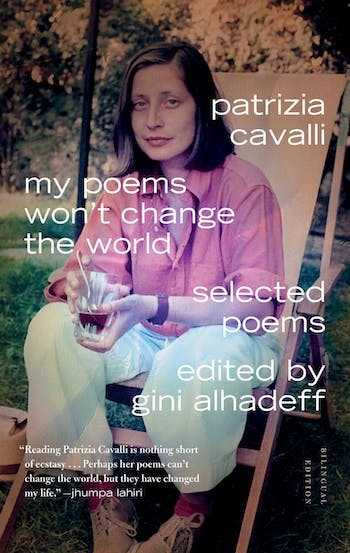
My Poems Won't Change the World | Patrizia Cavalli
BUY BOOK
BUY BOOK
Recommended by Clare Fentress
“Patrizia Cavalli's poems are about nothing less than the fullness of life, in all of its impossibilities, absurdities, and, yes, occasional joys. They revel in surprise without being naive, somehow maintaining a looseness that yields not flaccidity but sharpened perception. I feel a jolt every time I read them.”
About the Book
Any hall she has ever read her poetry in is invariably filled to the gills. Women like her, girls like her, and men like her, too. In Italy, Patrizia Cavalli is as beloved as Wistawa Szymborska is in Poland, and if Italy were Japan she'd be designated a national treasure. The Italian philosopher Giorgio Agamben said of Cavalli that she has written the most intensely ‘ethical’ poetry in Italian literature of the twentieth century. One could add that it is, easily, also the most sensual and comical. Though Cavalli has been widely translated into German, French, and Spanish, My Poems Won't Change the World is her first substantial American anthology.
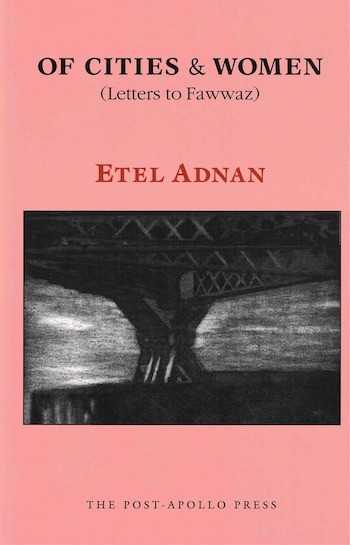
Of Cities & Women | Etel Adnan
BUY BOOK
BUY BOOK
Recommended by Ken Chen
“In the early nineties, the writer and artist Etel Adnan was asked by a fellow left-wing journalist if she wanted to go to an international women's summit and send back a report. While she did go to the conference, she replied that she would rather travel to different international cities and write back what she observed of women there. Of Cities and Women collects the resulting letters. While Adnan reflects on gender and politics, Western philosophy and the ‘Orient,’ the epistolary nature of the book means that the discourse is always relational. The effect is a nurturing, boundary-crossing sense of philosophical intimacy. This book should be a transnational feminist classic!”
About the Book
Written against the background of war at the turn of this century, this millennium—the Gulf War, the Lebanese civil war and the military occupations of that country, the author's country of origin—these letters, Of Cities & Women, are in their turn now letters to cities and women—that we, that is, women and men alike, might eventually, before it is too late, “find the right geography for our revelations.”—Barbara Harlow
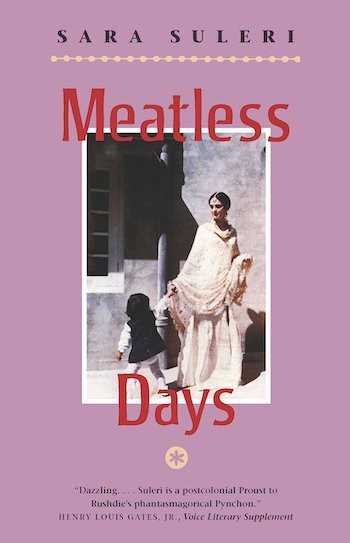
Meatless Days | Sara Suleri Goodyear
BUY BOOK
BUY BOOK
Recommended by Ken Chen
“One of the greatest essayists of the 20th century died recently and no one except for the South Asian literati noticed. Sara Suleri was a professor at Yale who in addition to writing a book on Colonial English, wrote this insanely dense book of essays. Often strangely structured, quietly sensuous, and provocative, what is magical is her layered sense of memory and narration, which has led her to be described as a South Asian Proust. I've spent many rewarding moments looking at her paragraphs line by line, trying to understand how she can condense so much density into so little space.”
About the Book
In this finely wrought memoir of life in postcolonial Pakistan, Suleri intertwines the violent history of Pakistan's independence with her own most intimate memories—of her Welsh mother; of her Pakistani father, prominent political journalist Z.A. Suleri; of her tenacious grandmother Dadi and five siblings; and of her own passage to the West.
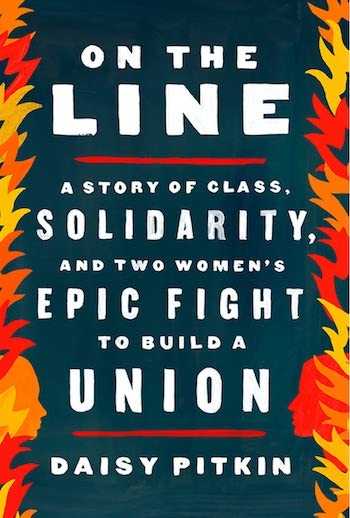
On the Line: A Story of Class, Solidarity, and Two Women’s Epic Fight to Build a Union | Daisy Pitkin
BUY BOOK
BUY BOOK
Recommended by Gabriel Winant
“If you’ve really been in it, social movement organizing of almost any kind is near-impossible to narrate. First of all, the relationships are too complex and burdened to faithfully portray without betraying a person or cause you care about. Relatedly, the process is too ambiguous: it typically combines some of the purest acts of principle and even self-sacrifice with the most base instrumentalities. At some level, you’d be doing it wrong if you didn’t have both of these sides. Most importantly, there's a protagonist problem. It’s very difficult to understand the intricacies of organizing relationships from the outside, but any participant is necessarily an unreliable narrator, most of all because organizing is a process of self-transformation. When you sit down to write about it, you're not the same person you were when you were in it. Daisy Pitkin somehow takes these narrative obstructions and turns them into the heart of her memoir of organizing with industrial laundry workers, On the Line. I’ve never read anything else about union organizing that comes close.”
About the Book
On the Line takes readers inside a bold five-year campaign to bring a union to the dangerous industrial laundry factories of Phoenix, Arizona. Workers here wash hospital, hotel, and restaurant linens and face harsh conditions: routine exposure to biohazardous waste, injuries from surgical tools left in hospital sheets, and burns from overheated machinery. Broken US labor law makes it nearly impossible for them to fight back. The drive to unionize is led by two women: author Daisy Pitkin, a young labor organizer, who addresses this exhilarating narrative to Alma Gomez García, a second-shift immigrant worker, who risks her livelihood to join the struggle and convinces her fellow workers to take a stand.
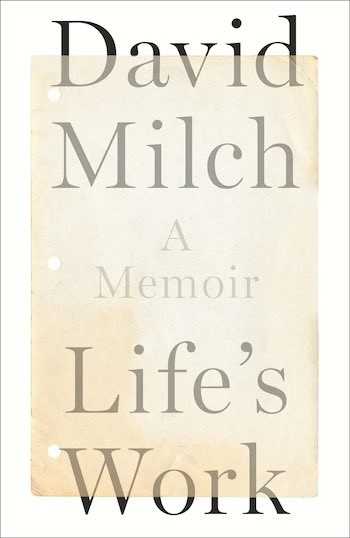
Life’s Work | David Milch
BUY BOOK
BUY BOOK
Recommended by Dayna Tortorici
“Before David Milch wrote television shows like Deadwood and NYPD Blue that blasted open the scope of that medium forever, he was a student of the New Critics at Yale, a teacher who got so loaded he had to crawl through the window to get to his office (lost his keys), a law school dropout, a guy who lived in Mexico making acid, and a kid who ran bets for his dad at the racetrack as soon as he was five years old. This is quite a life. Written in the midst of an Alzheimer’s diagnosis with the help of his wife and kids, Life’s Work is less a showbiz biography than the complex self-reckoning of a complicated mind. The book is more attentive to its subject’s faults than most memoirs of its kind, and the result is as soaring and eloquent and crazy and hypocritical and marvelous and vulgar as the shows Milch wrote. I loved it, especially the audiobook version.”
About the Book
Like Milch’s best screenwriting, Life’s Work explores how chance encounters, self-deception, and luck shape the people we become, and wrestles with what it means to have felt and caused pain, even and especially with those we love, and how you keep living. It is both a master class on Milch’s unique creative process, and a distinctive, revelatory memoir from one of the great American writers, in what may be his final dispatch to us all.
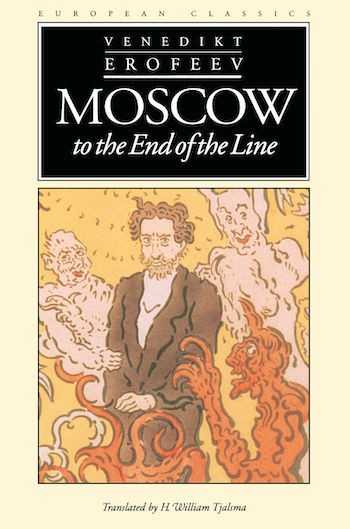
Moscow to the End of the Line | Venedikt Erofeev
BUY BOOK
BUY BOOK
Recommended by Mark Krotov
“A soulful alcoholic starts drinking and keeps on drinking on a train ride from Moscow to the town of Petushki. Reveries, musings, and encounters occur. This is a reductive plot description, but not wildly so. Moscow to the End of the Line isn’t a bad title for the English-language edition, but the original title—Moscow–Petushki—is better because it captures this book’s simple but ingenious structure: short chapters with names like “Moscow. The Kursk Station Restaurant” and “Chukhlinka–Kuskovo.” Russians call this book a prose poem, which I think has more to do with various psychological hang-ups about generic categories than anything else. This is a novel, and a great one—a funny and sui generis samizdat masterpiece that deserves more respect than it gets.”
About the Book
In this classic of Russian humor and social commentary, a fired cable fitter goes on a binge and hopes a train to Petushki (where his most beloved of trollops awaits). On the way he bestows upon angels, fellow passengers, and the world at large a magnificent monologue on alcohol, politics, society, alcohol, philosophy, the pains of love, and, of course, alcohol.
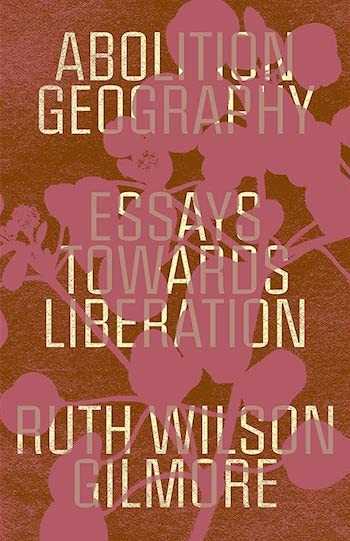
Abolition Geography | Ruth Wilson Gilmore
BUY BOOK
BUY BOOK
Recommended by Lisa Borst
“This collection assembles three decades of Gilmore’s essays and lectures, mostly on the past and present of mass incarceration. One effect of this sort of longitudinal sweep is that we get to see how, in response to violent shifts in policing and racial capitalism, conceptions of “abolition” have developed over time—how, as the US prison population has grown unthinkably huger, Gilmore’s abolitionist framework has in turn opened up increasingly expansive, utopian, and surprising possibilities.”
About the Book
Abolition Geography moves us away from explanations of mass incarceration and racist violence focused on uninterrupted histories of prejudice or the dull compulsion of neoliberal economics. Instead, Gilmore offers a geographical grasp of how contemporary racial capitalism operates through an "anti-state state" that answers crises with the organized abandonment of people and environments deemed surplus to requirement. Gilmore escapes one-dimensional conceptions of what liberation demands, who demands liberation, or what indeed is to be abolished. Drawing on the lessons of grassroots organizing and internationalist imaginaries, Abolition Geography undoes the identification of abolition with mere decarceration, and reminds us that freedom is not a mere principle but a place.
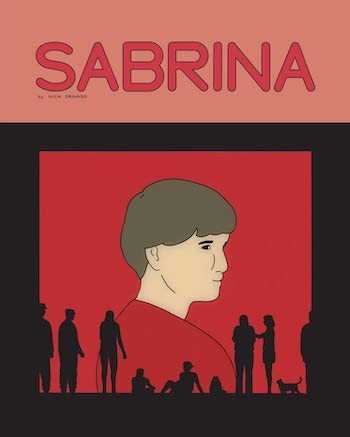
Sabrina | Nick Drnaso
BUY BOOK
BUY BOOK
Recommended by Nicole Lipman
“Reading Sabrina feels like being enveloped by the darkest parts of the internet: conspiracy, atomization, true crime, American right-wing politics. Nick Drnaso’s extraordinarily beautiful graphic novel swallows you and refuses to let you go—months after reading it, I’m still thinking about the book on a weekly basis. ”
About the Book
When Sabrina disappears, an airman in the US Air Force is drawn into a web of suppositions, wild theories, and outright lies. He reports to work every night in a bare, sterile fortress that serves as no protection from a situation that threatens the sanity of Teddy, his childhood friend and the boyfriend of the missing woman. Sabrina’s grieving sister, Sandra, struggles to fill her days as she waits in purgatory. After a videotape surfaces, we see devastation through a cinematic lens, as true tragedy is distorted when fringe thinkers and conspiracy theorists begin to interpret events to fit their own narratives.
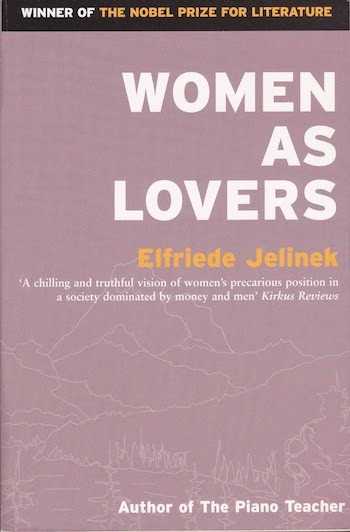
Women as Lovers | Elfriede Jelinek
BUY BOOK
BUY BOOK
Recommended by Tess Edmonson
“This book is written in a very formal, faux-naive allegorical register, which is deeply annoying, but in a way that Jelinek somehow weaponizes towards the most devastating and tragic possible ends.”
About the Book
The setting is an idyllic Alpine village where a woman's underwear factory nestles in the woods. Two factory workers, Brigitte and Paula, dream and talk about finding happiness, a comfortable home and a good man. They realize that their quest will be as hard as work at the factory.
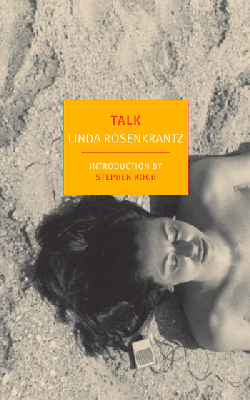
Talk | Linda Rosenkrantz
BUY BOOK
BUY BOOK
Recommended by Nicole Lipman
“I can't believe Talk was published nearly fifty years ago: the recorded conversations are almost shockingly contemporary, still funny and raunchy a half century later. Read it if you're obsessed with your friends, or if you have no friends (Linda Rosenkrantz will lend you hers for 240 pages).”
About the Book
Talk is a hilariously irreverent and racy testament to dialogue: the gossip, questioning, analysis, arguments, and revelations that make up our closest friendships. It’s the summer of 1965 and Emily, Vincent, and Marsha are at the beach. All three are ambitious and artistic; all are hovering around thirty; and all are deeply and mercilessly invested in analyzing themselves and everyone around them. The friends discuss sex, shrinks, psychedelics, sculpture, and S&M in an ongoing dialogue where anything goes and no topic is off limits. Talk is the result of these conversations, recorded by Linda Rosenkrantz and transformed into a novel whose form and content put it well ahead of its time. Controversial upon its first publication in 1968, Talk remains fresh, lascivious, and laugh-out-loud funny nearly fifty years later.
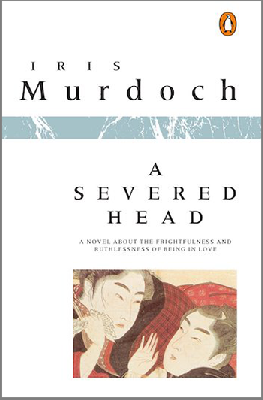
A Severed Head | Iris Murdoch
BUY BOOK
BUY BOOK
Recommended by Ari M. Brostoff
“Iris Murdoch was interested in the question of what it means to be good in a world shaped by amoral desire, and A Severed Head—a very funny and also deadly serious philosophy joke barely disguised as a comedy of manners—is a deeply provocative, and truly bonkers, attempt at an answer.”
About the Book
Martin Lynch-Gibson believes he can possess both a beautiful wife and a delightful lover. But when his wife, Antonia, suddenly leaves him for her psychoanalyst, Martin is plunged into an intensive emotional reeducation. He attempts to behave beautifully and sensibly. Then he meets a woman whose demonic splendor at first repels him and later arouses a consuming and monstrous passion. As his Medusa informs him, "this is nothing to do with happiness."
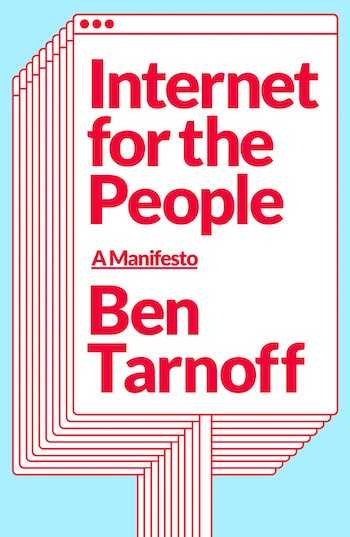
Internet for the People | Ben Tarnoff
BUY BOOK
BUY BOOK
Recommended by Max Read
“This is a remarkable book that manages to be—simultaneously—a concise history of the internet, an engaging explanation of how it works (on both a technical and a political level), and a thought-provoking argument about what needs to be done for it to fulfill its promise. All in only a couple hundred pages, to boot!”
About the Book
In Internet for the People, leading tech writer Ben Tarnoff offers an answer. The internet is broken, he argues, because it is owned by private firms and run for profit. Google annihilates your privacy and Facebook amplifies right-wing propaganda because it is profitable to do so. But the internet wasn't always like this—it had to be remade for the purposes of profit maximization, through a years-long process of privatization that turned a small research network into a powerhouse of global capitalism. Tarnoff tells the story of the privatization that made the modern internet, and which set in motion the crises that consume it today.
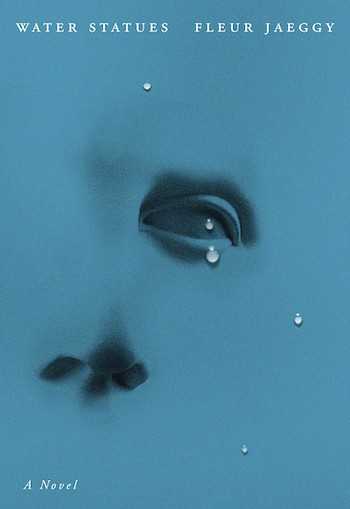
The Water Statues | Fleur Jaeggy
BUY BOOK
BUY BOOK
Recommended by Clare Fentress
“A slight, dread-laced volume that truly defies description, The Water Statues is inscrutable yet particular, highly formal yet entirely unconventional. Read it to renew your faith in the untapped possibilities of fiction. ”
About the Book
Even among Fleur Jaeggy's singular and intricate works, The Water Statues is a shiningly peculiar book. Concerned with loneliness and wealth's odd emotional poverty, this early novel is in part structured as a play: the dramatis personae include the various relatives, friends, and servants of a man named Beeklam, a wealthy recluse who keeps statues in his villa's flooded basement, where memories shiver in uncertain light and the waters run off to the sea.
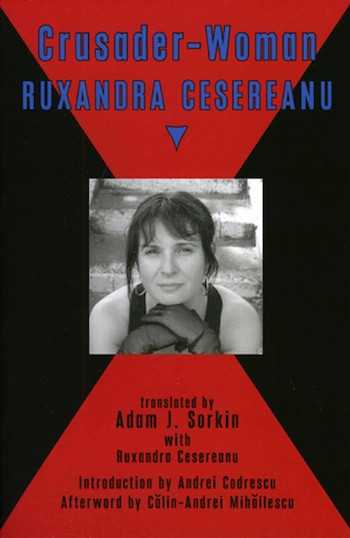
Crusader Woman | Ruxandra Cesereanu
BUY BOOK
BUY BOOK
Recommended by Ken Chen
“‘A panther is writing you, American poets,’ writes the Romanian poet Ruxandra Ceserenu in this bonkers collection. A femnist epic where the interior life of the poet becomes a Jungian landscape, this is a book that is wild and weird, messy and maximalist. It's an excessive antidote to the safeness and predictability of American poetry.”
About the Book
The first comprehensive anthology in English of one of Romania's most important and exciting young poets. With some nine volumes of poetry, five books of fiction, and a number of selected essays published in Romania and Europe, Andrei Codrescu in his introduction makes it clear: Ruxandra is the real thing: a poet of extreme vitality, painting visual images that linger long after the book is put down.
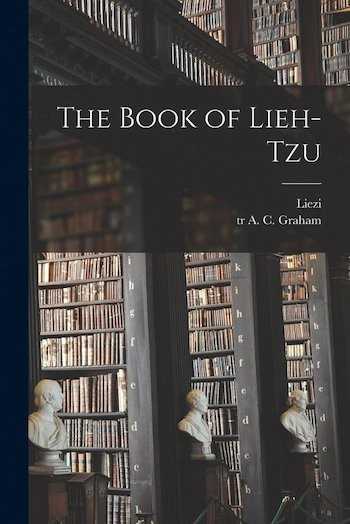
The Book of Lieh-tzu | A. C. Graham
BUY BOOK
BUY BOOK
Recommended by Ken Chen
“I want NYRB to republish this book and have me write the intro. This is the least famous of the three great Daoist books and also the most slapstick. Aside from a few forays into dense dialectical mysticism, much of the book consists of some of the best written philosophical fables ever. The stories intersect a wuxia wonder intersects with metaphysics and satirized Confucian class structure. A judge adjudicates who has the right to a deer killed in a dream. The character of one story is a feudal landowner dreaming he is a servant—or is he the reverse? There are invisible swords, people who have removed their hearts, the proper etiquette one should use for magic powers, and the social creation of memory. Better than Kafka!”
About the Book
A translation of the work of the Taoist philosopher, Lieh-tzu. Includes, among others, Heaven's Gifts, Yang Chu and the Questions of T'ang.
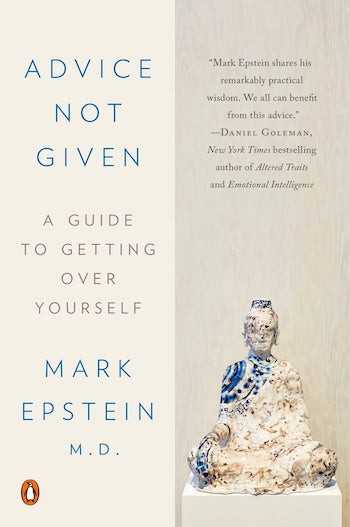
Advice Not Given: A Guide to Getting Over Yourself | Mark Epstein
BUY BOOK
BUY BOOK
Recommended by Dayna Tortorici
“A very practical, approachable book about how Buddhism and Western Psychology, namely psychoanalysis or ‘psychodynamic’ therapy, can work in tandem to help people fix their broken brains.”
About the Book
Our ego, and its accompanying sense of nagging self-doubt as we work to be bigger, better, smarter, and more in control, is one affliction we all share. But while our ego is at once our biggest obstacle, it can also be our greatest hope. We can be at its mercy or we can learn to work with it. With great insight, and in a deeply personal style, renowned psychiatrist and author Dr. Mark Epstein offers a how-to guide that refuses a quick fix. In Advice Not Given, he reveals how Buddhism and Western psychotherapy, two traditions that developed in entirely different times and places, both identify the ego as the limiting factor in our well-being, and both come to the same conclusion: When we give the ego free rein, we suffer; but when it learns to let go, we are free.
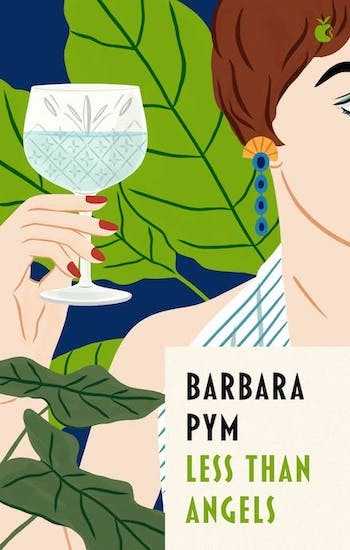
Less Than Angels | Barbara Pym
BUY BOOK
BUY BOOK
Recommended by Jane Hu
“If you think Lucky Jim is the iconic OG British campus novel, think again. Barbara Pym's Less Than Angels—about a group of hapless anthropologists in London (featuring harried professors and abject grad students alike)—will have you lol-ing irl throughout.”
About the Book
Catherine Oliphant writes for women's magazines and lives comfortably with anthropologist Tom Mallow—although she's starting to wonder if they'll ever get married. Then Tom drops his bombshell: He's leaving her for a nineteen-year-old student. Though stunned by Tom's betrayal, Catherine quickly becomes fascinated by another anthropologist, Alaric Lydgate, a reclusive eccentric recently returned from Africa. As Catherine starts to weigh her options, she must figure out who she is and what she really wants.

The Prone Gunman | Jean-Patrick Manchette
BUY BOOK
BUY BOOK
Recommended by Rachel Kushner
“A professional killer wants out of the business but his underworld bosses won’t cut him loose until he completes one last job. The killer atypically loves Maria Callas, but like most assassins in Manchette novels, he drives a 1968 Citroen DS 21. Manchette knew a lot about cars and even more about guns. His knowledge becomes a wonderful joke in its specificity. And by the time guns start blowing people’s heads off, you really can’t stop laughing. You laugh heartily, but somehow, lose none of your humanity. Well, maybe you lose a little of it, but it was totally worth it.”
About the Book
Martin Terrier is a hired killer who wants out of the game—so he can settle down and marry his childhood sweetheart. After all, that’s why he took up this profession. But the company won’t let him go: they have other plans. Once again, the gunman must assume the prone firing position. A tour de force, this violent tale shatters as many illusions about life and politics as it does bodies. Jean-Patrick Manchette subjects his characters and the reader alike to a fierce exercise in style.
This tightly plotted, corrosive parody of the success story is widely considered to be Manchette’s masterpiece, and was named a New York Times Notable Book. The Prone Gunman is a classic of modern noir.
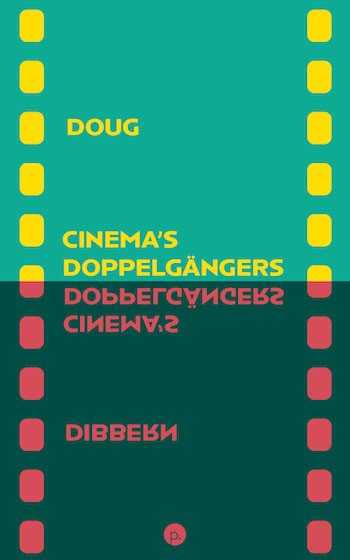
Cinema’s Doppelgängers | Doug Dibbern
BUY BOOK
BUY BOOK
Recommended by A. S. Hamrah
“I do not know who Doug Dibbern is, what he’s trying to do, or what he wants from us. This imposing volume exists to derail and confuse all the Letterboxd cinephiles out there who think they have a grasp on film history, who pay attention to the Sight & Sound poll, who don’t know that Fritz Lang didn’t make a film called Wet Pavement in 1946. Nothing is knowable, really, but some things are true in this epic retelling of the history of the international canon, fit only for the most serious cinema lovers, who may resent this book’s very existence. Thrill to a world in which Afternoon, Clichy (Adele Beyle, 1988) topped the “most recent” list of the best films ever made.”
About the Book
Cinema’s Doppelgängers is a counterfactual history of the cinema—or, perhaps, a work of speculative fiction in the guise of a scholarly history of film and movie guide. That is, it’s a history of the movies written from an alternative unfolding of historical time—a world in which neither the Bolsheviks nor the Nazis came to power, and thus a world in which Sergei Eisenstein never made movies and German filmmakers like Fritz Lang never fled to Hollywood, a world in which the talkies were invented in 1936 rather than 1927, in which the French New Wave critics didn’t become filmmakers, and in which Hitchcock never came to Hollywood.
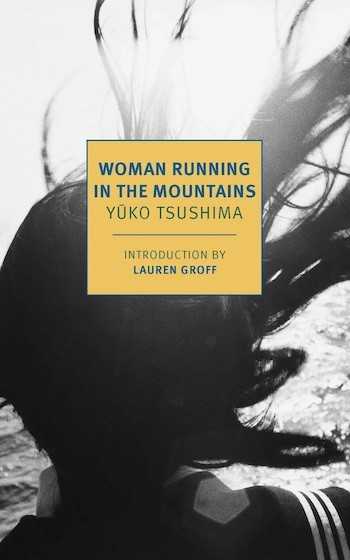
Woman Running in the Mountains | Yuko Tsushima
BUY BOOK
BUY BOOK
Recommended by Jia Tolentino
“The ambience in Yuko Tsushima’s work—the tangible mundanity, the cruelty of the social, the unexpected intimacies, the shattering beauty of the natural world and its light—is so distinct, alternately kind of opaque and transcendent; I find myself going to her when I’m sick of reading things that feel too legible, like they’ve been through workshop too many times. This novel, a first-year-of-single-motherhood chronicle, captures something wild in its second half, a sudden awakening of real, harrowing freedom and desire.”
About the Book
Alone at dawn, in the heat of midsummer, a young woman named Takiko Odaka departs on foot for the hospital to give birth to a baby boy. Her pregnancy, the result of a brief affair with a married man, is a source of sorrow and shame to her abusive parents. For Takiko, however, it is a cause for reverie. Her baby, she imagines, will be hers and hers alone, a challenge that she also hopes will free her. Takiko’s first year as a mother is filled with the intense bodily pleasures and pains that come from caring for a newborn. At first she seeks refuge in the company of other women—in the hospital, in her son’s nursery—but as the baby grows, her life becomes less circumscribed as she explores Tokyo, then ventures beyond the city into the countryside, toward a mountain that captures her imagination and desire for a wilder freedom.
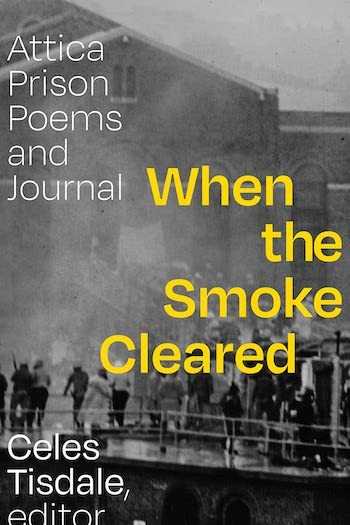
When the Smoke Cleared | Celes Tisdale
BUY BOOK
BUY BOOK
Recommended by Elias Rodriques
“Tisdale’s journals of teaching at Attica after the rebellion are exceeded in their beauty and their erudition only by the poetry of the incarcerated men themselves, who offer a glimpse into life after tragedy.”
About the Book
Following the Attica prison uprising in September 1971, Celes Tisdale—a poet and then professor at Buffalo State College—began leading poetry workshops with those incarcerated at Attica. Tisdale’s workshop created a space of radical Black creativity and solidarity, in which poets who lived through the uprising were able to turn their experiences into poetry. The poems written by Tisdale’s students were published as Betcha Ain’t: Poems from Attica in 1974. When the Smoke Cleared contains the entirety of Betcha Ain’t, Tisdale’s own poems and journal entries from the three years he taught at Attica, a previously unpublished collection of poems by Attica poets, and a critical introduction by poet Mark Nowak. In addition to the poetry, Tisdale’s journal entries give readers a unique opportunity to experience what it was like to enter Attica as an educator and return week after week to discuss poetry. When the Smoke Cleared showcases these poets’ achievements, their desire for self-determination, and their historical role as storytellers of Black life in a prison monitored exclusively by white guards and administrators.
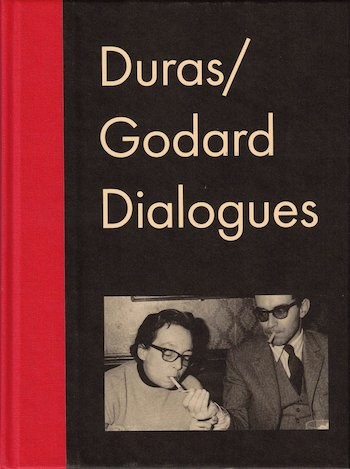
Duras/Godard Dialogues | Marguerite Duras & Jean-Luc Godard
BUY BOOK
BUY BOOK
Recommended by A. S. Hamrah
“This book collects, in translation, the series of interviews, or meetings, which took place between the two French colossi over an eight-year period in the late 1970s and 1980s. Its release got lost somewhere in the deepest low points of the hell year 2020. And I mean the deepest, because when Duras and Godard get together, things may be pithy but they are not light. ‘Do people laugh when they write?’ JLG asks MD. ‘They also cry,’ she says.”
About the Book
“This deceptively slim volume condenses a decade worth of vigorous activity into a few brief, yet enormously rich encounters.” —Sight & Sound. Introduction, afterword and footnotes by Cyril Béghin. Translation by Nicholas Elliott.
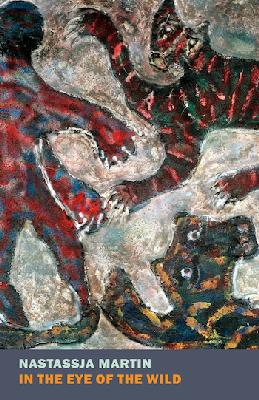
In the Eye of the Wild | Nastassja Martin
BUY BOOK
BUY BOOK
Recommended by Bela Shayevich
“A bear bites off a part of Nastassja Martin's face on the very first page of In the Eye of the Wild and it only gets more exciting from there. In a tiny, 128-page work of ground-breaking lyric nonfiction, Martin beautifully renders the nadirs of post-Soviet hospital horror, the disasters of French snobbism, and the warmth of the Even people of Kamchatka. Most importantly, she undertakes a serious contemplation of undigestible spiritual experience. Although she is a scientist—an anthropologist—she refuses to pretend that the systems of scientific, cultural, and spiritual inquiry she has studied are capable of accounting for what happened to her. A fascinating philosophical portrait of epistemological shadows and a woman's extraordinary hybridity.”
About the Book
In the Eye of the Wild begins with an account of the French anthropologist Nastassja Martin's near fatal run-in with a Kamchatka bear in the mountains of Siberia. Martin's professional interest is animism; she addresses philosophical questions about the relation of humankind to nature, and in her work she seeks to partake as fully as she can in the lives of the indigenous peoples she studies. Her violent encounter with the bear, however, brings her face-to-face with something entirely beyond her ken—the untamed, the nonhuman, the animal, the wild. In the course of that encounter something in the balance of her world shifts. A change takes place that she must somehow reckon with.
Left severely mutilated, dazed with pain, Martin undergoes multiple operations in a provincial Russian hospital, while also being grilled by the secret police. Back in France, she finds herself back on the operating table, a source of new trauma. She realizes that the only thing for her to do is to return to Kamchatka. She must discover what it means to have become, as the Even people call it, medka, a person who is half human, half bear.
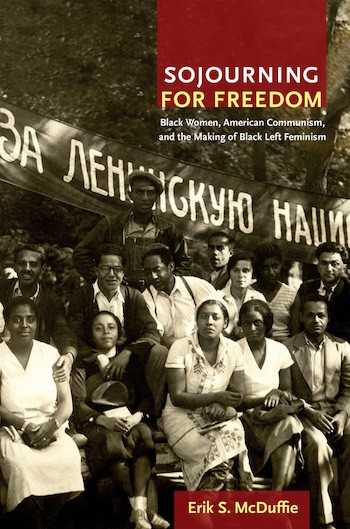
Sojourning for Freedom | Erik S. McDuffie
BUY BOOK
BUY BOOK
Recommended by Jennifer Wilson
“I pitch this to friends as a kind of prehistory of the Combahee River Collective, focused on Depression-era Harlem but the opposite of depressing. In writing about the American left, McDuffie centers Black working-class women, poorly-paid domestics and laundrywomen turned C.P.U.S.A. activists and thought leaders by necessity. Their wages depressed by both racism and sexism, McDuffie’s subjects understood Marxism as a theory of Black women’s survival and articulated it as such. They organized rent strikes, blocked evictions, led protests of grocery stores that charged Black customers higher prices for food, and secured housing for single mothers. They dreamed of Moscow.”
About the Book
Sojourning for Freedom portrays pioneering black women activists from the early twentieth century through the 1970s, focusing on their participation in the U.S. Communist Party (CPUSA) between 1919 and 1956. Erik S. McDuffie considers how women from diverse locales and backgrounds became radicalized, joined the CPUSA, and advocated a pathbreaking politics committed to black liberation, women's rights, decolonization, economic justice, peace, and international solidarity. McDuffie explores the lives of black left feminists, including the bohemian world traveler Louise Thompson Patterson, who wrote about the “triple exploitation” of race, gender, and class; Esther Cooper Jackson, an Alabama-based civil rights activist who chronicled the experiences of black female domestic workers; and Claudia Jones, the Trinidad-born activist who emerged as one of the Communist Party's leading theorists of black women's exploitation. Drawing on more than forty oral histories collected from veteran black women radicals and their family members, McDuffie examines how these women negotiated race, gender, class, sexuality, and politics within the CPUSA. In Sojourning for Freedom, he depicts a community of radical black women activist intellectuals who helped to lay the foundation for a transnational modern black feminism.
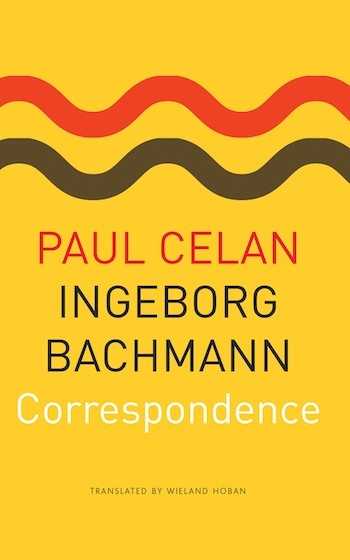
Correspondence | Paul Celan & Ingeborg Bachmann
BUY BOOK
BUY BOOK
Recommended by Tess Edmonson
“I often recommend this book to friends who are anxious about balancing their ambitions to write or make art with the necessity of working for money. Ingeborg Bachmann prepared her first volume of poetry in the off hours from her day job at a radio station. After that title brought her recognition in the postwar German-language literary world, she wrote for money, and worked on her novel trilogy, Death Styles, when she could. Correspondence, a collection of letters exchanged by Bachmann and Paul Celan over the course of their decades-long love affair, is a very romantic book, but the passages I find the most special are those that open so many of Bachmann's letters to Celan: I’m sorry it’s taken me so long to write back, I am the worst, work has been sewwww crazy.”
About the Book
Paul Celan (1920–70) is one of the best-known German poets of the Holocaust; many of his poems, admired for their spare, precise diction, deal directly with its stark themes. Austrian writer Ingeborg Bachmann (1926–73) is recognized as one of post–World War II German literature’s most important novelists, poets, and playwrights. It seems only appropriate that these two contemporaries and masters of language were at one time lovers, and they shared a lengthy, artful, and passionate correspondence.
Collected here for the first time in English are their letters written between 1948 and 1961. Their correspondence forms a moving testimony of the discourse of love in the age after Auschwitz, with all the symptomatic disturbances and crises caused by their conflicting backgrounds and their hard-to-reconcile designs for living—as a woman, as a man, as writers.
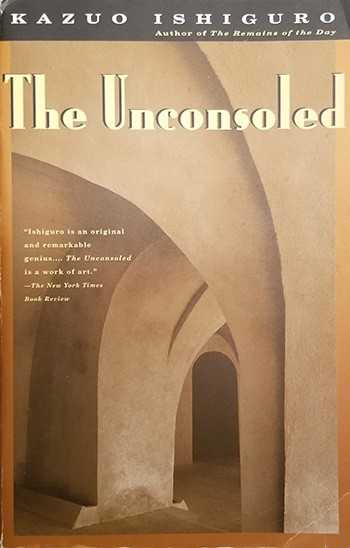
The Unconsoled | Kazuo Ishiguro
BUY BOOK
BUY BOOK
Recommended by Mark Krotov
“Amit Chaudhuri’s editors at the London Review of Books gave his infamous review of The Unconsoled a brutal title—‘Unlike Kafka’—that always calls to mind the scene in The Royal Tenenbaums when a despondent Owen Wilson asks why a reviewer would “make the point of saying someone’s not a genius.” James Wood, meanwhile, wrote that the novel ‘invents its own category of badness.’ Yeah, well, you know, that’s just like, your opinion, men. The Unconsoled is great! So much art is described as adhering to dream logic, but this book gets closer than most: a pianist named Ryder arrives in a European city and spends the next five hundred or so pages getting stymied, flummoxed, disoriented, bewildered, etc. Ishiguro constructs Ryder’s missed encounters, non-encounters, and anti-encounters with such steady confidence that it’s impossible to lose interest in the narrative, even as it’s clear that the narrative will go nowhere. Because The Unconsoled is an elusive novel, it has been saddled with many unfortunate covers. The only edition that captures the mystery within is the mid-’90s Vintage paperback with the Jean Dieuzaide photo. $4.99 on eBay!”
About the Book
The Unconsoled is at once a gripping psychological mystery, a wicked satire of the cult of art, and a poignant character study of a man whose public life has accelerated beyond his control. The setting is a nameless Central European city where Ryder, a renowned pianist, has come to give the most important performance of his life. Instead, he finds himself diverted on a series of cryptic and infuriating errands that nevertheless provide him with vital clues to his own past.
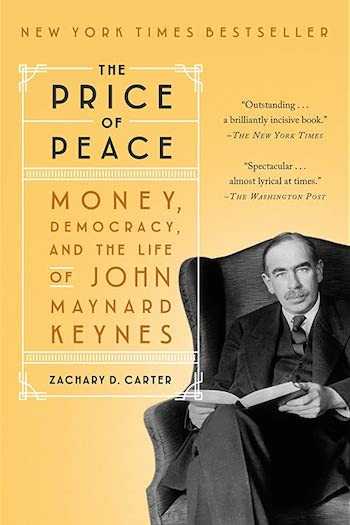
The Price of Peace: Money, Democracy, and the Life of John Maynard Keynes | Zachary D. Carter
BUY BOOK
BUY BOOK
Recommended by Nausicaa Renner
“If you like left-wing economics and sounding savvy in D.C.”
About the Book
At the dawn of World War I, a young academic named John Maynard Keynes hastily folded his long legs into the sidecar of his brother-in-law's motorcycle for an odd, frantic journey that would change the course of history. Swept away from his placid home at Cambridge University by the currents of the conflict, Keynes found himself thrust into the halls of European treasuries to arrange emergency loans and packed off to America to negotiate the terms of economic combat. The terror and anxiety unleashed by the war would transform him from a comfortable obscurity into the most influential and controversial intellectual of his day—a man whose ideas still retain the power to shock in our own time.
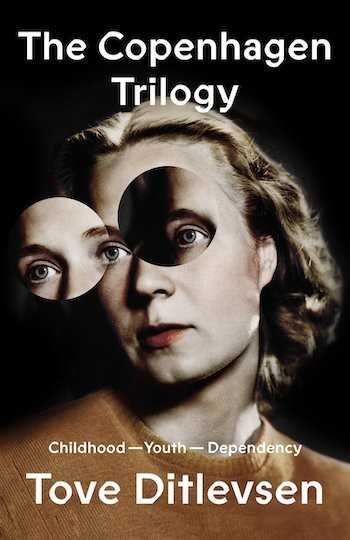
The Copenhagen Trilogy | Tove Ditlevsen
BUY BOOK
BUY BOOK
Recommended by Sarah Resnick
“I stole away from dinner with friends to continue reading this alone—twice. It’s ******* miserable. It’s ******* exquisite.”
About the Book
Tove Ditlevsen is today celebrated as one of the most important and unique voices in twentieth-century Danish literature, and The Copenhagen Trilogy (1969-71) is her acknowledged masterpiece. Childhood tells the story of a misfit child's single-minded determination to become a poet; Youth describes her early experiences of sex, work, and independence. Dependency picks up the story as the narrator embarks on the first of her four marriages and goes on to describe her horrible descent into drug addiction, enabled by her sinister, gaslighting doctor-husband.
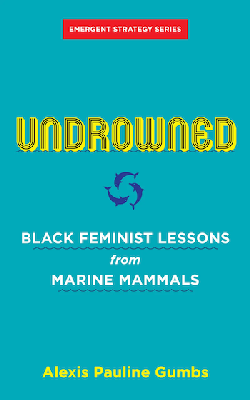
Undrowned: Black Feminist Lessons from Marine Mammals | Alexis Pauline Gumbs
BUY BOOK
BUY BOOK
Recommended by Hannah Zeavin
“Gumbs’s book opens by asking “What is the scale of breathing?” and turns to the question of submerged knowledge and other ways of knowing. Under consideration here: what we can learn from marine mammals. But it is also about, as Gwendolyn Brooks puts it “what / is going on / is going on”—and not just for our species. Gumbs “identifies with” dolphins and their love, learns from marine kinship arrangements, looks to whales and their migration patterns to argue that they were and are a species that witnessed the horrors of the transatlantic slave trade. A prose poem or elegy or prayer, this guidebook doubles as a manual for how to be in relation. Undrowned is a book about how we know and can learn and unlearn, through the other, at distance and at scale.”
About the Book
Undrowned is a book-length meditation for social movements and our whole species based on the subversive and transformative guidance of marine mammals. Our aquatic cousins are queer, fierce, protective of each other, complex, shaped by conflict, and struggling to survive the extractive and militarized conditions our species has imposed on the ocean. Gumbs employs a brilliant mix of poetic sensibility and naturalist observation to show what they might teach us, producing not a specific agenda but an unfolding space for wondering and questioning.
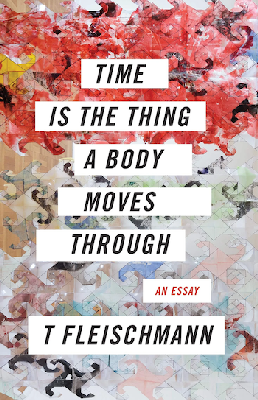
Time Is the Thing a Body Moves Through | T Fleischmann
BUY BOOK
BUY BOOK
Recommended by Alexander Chee
“T Fleischmann’s Time Is A Thing The Body Moves Through is an elegant long meditation on desire, queerness, trans identity, art, New York roof parties, the guy who won’t come closer and won’t go away, the way love can be like a hangnail or an opera. Smart, smart fun, and a fine example of the long essay, lately in resurgence.”
About the Book
How do the bodies we inhabit affect our relationship with art? How does art affect our relationship to our bodies? T Fleischmann uses Felix Gonzáles-Torres's artworks—piles of candy, stacks of paper, puzzles—as a path through questions of love and loss, violence and rejuvenation, gender and sexuality. From the back porches of Buffalo, to the galleries of New York and L.A., to farmhouses of rural Tennessee, the artworks act as still points, sites for reflection situated in lived experience. Fleischmann combines serious engagement with warmth and clarity of prose, reveling in the experiences and pleasures of art and the body, identity and community.
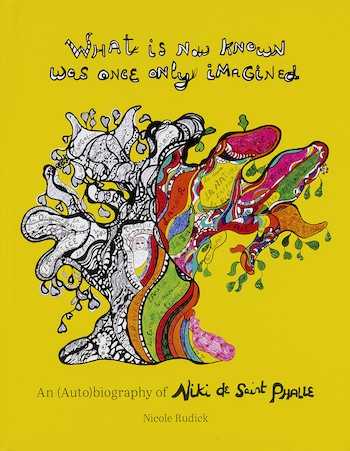
What Is Now Known Was Once Only Imagined | Niki De Saint Phalle & Nicole Rudick
BUY BOOK
BUY BOOK
Recommended by Clare Fentress
“Admirers of the inimitable Niki de Saint Phalle know that she published multiple illustrated memoirs before her death in 2002. Each of these touching works, though, covered just a small sliver of her life. In this phenomenal (auto)biography, de Saint Phalle is allowed to tell her entire story for the first time. Author and editor Nikole Rudick stitches together excerpts from de Saint Phalle's archives and artworks to create a gorgeous quilt, all from de Saint Phalle's own words and drawings. It's a deeply intimate invitation into the struggles, self-doubt, and inextinguishable drive of this remarkable artist.”
About the Book
Known best for her exuberant, often large-scale sculptural works that celebrate the abundance and complexity of female desire, imagination and creativity, Niki de Saint Phalle viewed making art as a ritual, a performance—a process connecting life to art. This unconventional, illuminated biography, told in the first person in Saint Phalle's voice and her own hand, dilates large and small moments in Saint Phalle's life which she sometimes reveals with great candor, at other times carefully unwinding her secrets. Nicole Rudick, in a kind of collaboration with the artist, has assembled a gorgeous and detailed mosaic of Saint Phalle's visual and textual works from a trove of paintings, drawings, sketches and writings, many previously unpublished or long unavailable, that trace her mistakes and successes, her passions and her radical sense of joy. Saint Phalle's invocation—her bringing to life—writes Rudick, is an apt summation of the overlap of Saint Phalle's life and art: both a bringing into existence and a bringing to bear. These are visions from the frontiers of consciousness.
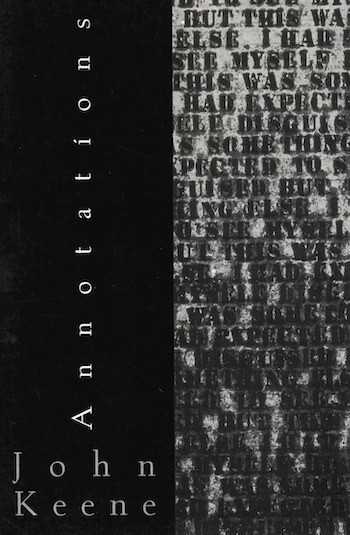
Annotations | John Keene
BUY BOOK
BUY BOOK
Recommended by Ken Chen
“John Keene's poetry collection Punks is a finalist of this year's National Book Award and his experimental/archival story collection Counternarratives helped him garner a MacArthur Genius Award. Less known is Annotations, an unusual autobiographical text he wrote as a young man. Written under the sign of Lyn Hejinian's slippery memoir, My Life, Annotations similarly disrupts the conventions of the memoir by never offering a coherent self or narrative. Instead, the story of the self—specifically, Keene's coming of age as a gay Black kid in St. Louis, against the subtext of a process of racial capitalism—is told through extravagantly constructed sentences that endeavor to construct a kind of experimental syntax. The book suggests an alternative direction for both experimental literature (Jamesian ornamentalism rather than fragmentation) and for the racial memoir (thwarting representation rather than claiming it).”
About the Book
An experimental first novel of poem-like compression, Annotations has a great deal to say about growing up Black in St. Louis. Reminiscent of Jean Toomer's Cane, the book is in part a meditation on African-American autobiography. Keene explores questions of identity from many angles—from race to social class to sexuality (gay and straight). Employing all manner of textual play and rhythmic and rhetorical maneuvers, he (re)creates his life story as a jazz fugue-in-words.
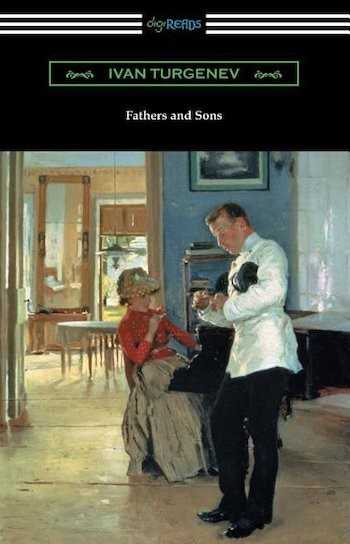
Fathers and Sons | Ivan Turgenev
BUY BOOK
BUY BOOK
Recommended by Dayna Tortorici
“A widowed father sends his son to university to give him the best possible life, and when his son comes back, he brings home a cynical, nihilist doctor friend who calls everyone a lib and a loser, ruffling everyone's feathers about the fate of the younger generation. Relatable! A classic of the homecoming genre, this book has many translations, but I like Constance Garnett's best.
About the Book
When Arkady Petrovich returns home from college, his father finds his eager, naive son changed almost beyond recognition, for the impressionable Arkady has fallen under the powerful influence of the friend he has brought home with him. A self-proclaimed nihilist, the ardent young Bazarov shocks Arkady's father with his criticisms of the landowning way of life and his determination to overthrow the traditional values of contemporary society.
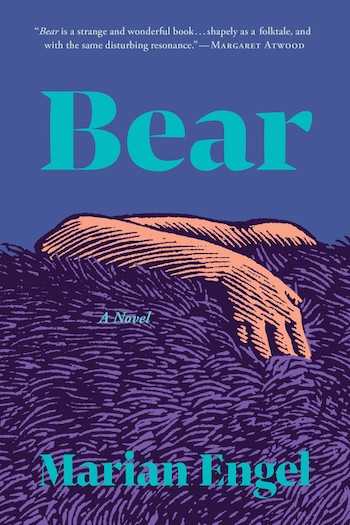
Bear | Marian Engel
BUY BOOK
BUY BOOK
Recommended by Dayna Tortorici
“When people recommended this book as ‘a hidden feminist classic about a woman who has sex with a bear!’ I really imagined something in the vein of, I don't know, The Mermaid and the Minotaur—something magical and mythic. But no, this book is 100% realist fiction, which is what makes it so great. Spoiler alert: if ‘sex’ to you means exclusively penetrative sex, then no, the isolated, depressed, historical-preservationist/librarian protagonist does not manage to have sex with a bear. But she does come close, and how she gets there could be considered proto-femcel canon. Can't say for certain, but I imagine it pairs well with In the Eye of the Wild.”
About the Book
Lou, a shy and secretive young librarian is called to a remote Canadian island to inventory the estate of the recently deceased Colonel Cary. In a cabin on the island, she discovers the colonel had a secret as well. A bear is chained inside. Fascinated, Lou brings the bear into the house and slowly gains the animal's trust. She sinks her fingers into the bear's fur—and soon realizes her darkest desire is for this large, powerful animal to be her lover.
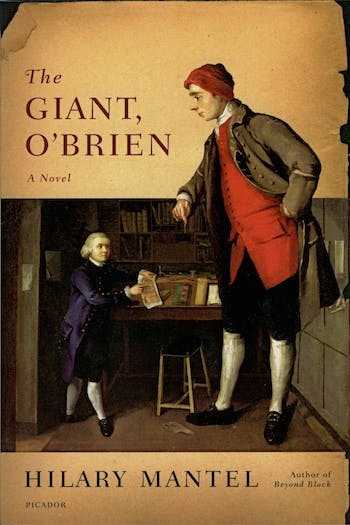
The Giant, O'Brien | Hilary Mantel
BUY BOOK
BUY BOOK
Recommended by Jane Hu
“I would argue that this slim book is in fact Mantel's best historical novel. The Giant, O'Brien is the fictional retelling of a 18th century ‘Irish Giant’ who toured London as a spectacle before his untimely death at 22 (which is, incidentally the same age when Mantel began seriously to write novels). It's a feat of storytelling. I've never read a contemporary novel like it.”
About the Book
Loosely based on true events in the eighteenth century, this novel chronicles the intersection of two lives: Charles O'Brien, an exceptionally large man who travels along with friends from Ireland to England to exhibit himself, and John Hunter, a Scottish anatomist and scientist obsessed with experimentation, discovery, and collection.
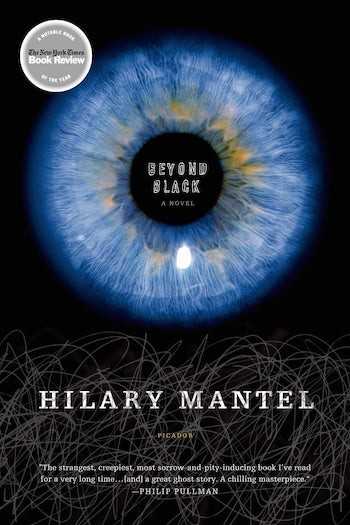
Beyond Black | Hilary Mantel
BUY BOOK
BUY BOOK
Recommended by Jane Hu
“This is Mantel's novel about psychics and the supernatural world. It's somehow at once goofy and menacing. Think: a historical novel, but about predicting the future. Or: Thelma and Louise, but featuring London fortune-tellers.”
About the Book
Colette and Alison are unlikely cohorts: one a shy, drab beanpole of an assistant, the other a charismatic, corpulent psychic whose connection to the spiritual world torments her. When they meet at a fair, Alison invites Colette at once to join her on the road as her personal assistant and companion. Troubles spiral out of control when the pair moves to a suburban wasteland in what was once the English countryside. It is not long before the place beyond black threatens to uproot their lives forever.
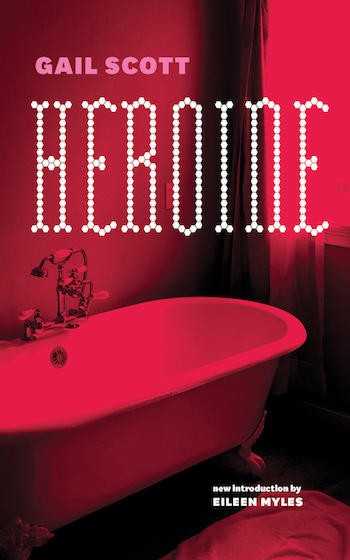
Heroine | Gail Scott
BUY BOOK
BUY BOOK
Recommended by Jane Hu
“When I was a hysterical college student in Montreal during the late 2000s, I often wished that I had been instead a hysterical woman in Montreal during the late 1970s instead. Thankfully, we have this novel by Gail Scott—a world-wearing jolt from the past. For appropriate ambience: Try reading it in your bathtub, as the water trickles and grows cold.”
About the Book
In a bathtub in a rooming house in Montreal in 1980, a woman tries to imagine a new life for herself: a life after a passionate affair with a man while falling for a woman, a life that makes sense after her deep involvement in far left politics during the turbulent seventies of Quebec, a life whose form she knows can only be grasped as she speaks it.
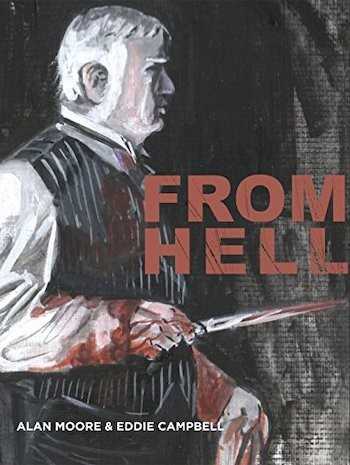
From Hell | Alan Moore & Eddie Campbell
BUY BOOK
BUY BOOK
Recommended by Nausicaa Renner
“Jack the Ripper and the grotesque psychogeography of his time, True Detective before True Detective. An amazing use of setting to move the story forward.”
About the Book
From the squalid alleys of the East End to the Houses of Parliament, from church naves to dens of the occult, all of London feels the uniquely irresistable blend of fascination, revulsion, and panic that the Ripper offers. The city teeters on the brink of the twentieth century, and only the slightest prodding is necessary to plunge it into a modern age of terror.

The Heat’s On | Chester Himes
BUY BOOK
BUY BOOK
Recommended by Lawrence Jackson
“How was it possible for one writer to see so far ahead, the crossroads of absurdism and realism.”
About the Book
From the start, nothing goes right for Coffin Ed and Grave Digger. They are disciplined for use of excessive force. Grave Digger is shot and his death announced in a hoax radio bulletin. Bodies pile up faster than Coffin Ed and Grave Digger can run. Yet, try as they might, they always seem to be one hot step behind the cause of all the mayhem—three million dollars’ worth of heroin and a giant albino called Pinky.
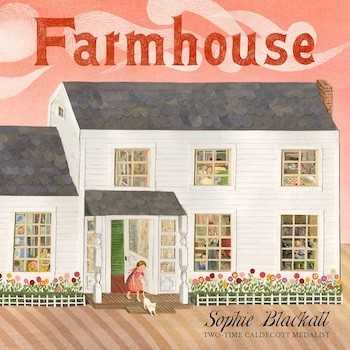
Farmhouse | Sophie Blackall
BUY BOOK
BUY BOOK
Recommended by Mark Krotov
“This book is intended for readers between the ages of 4 and 8, though in my experience it also has much to offer readers between the ages of 34 and 38. Based on an old house Blackall bought and from which she salvaged various scraps—handmade dresses, pieces of wallpaper, a button in the shape of a seashell—before the excavator came to knock it down, Farmhouse is told in verse and features beautiful illustrations that in their scale and lavish detail call to mind quilts. Blackall identified the family that lived in the house and spoke to their relatives and descendants. We watch as the family rises and falls, the house flourishes and decays, and the narrator arrives just in time to salvage the scraps. Those in the 34–38 range have been known to cry at the end.”
About the Book
Step inside the dollhouse-like interior of Farmhouse and relish in the daily life of the family that lives there, rendered in impeccable, thrilling detail. Based on a real family and an actual farmhouse where Sophie salvaged facts and artifacts for the making of this spectacular work, page after page bursts with luminous detail and joy. Join the award-winning, best-selling Sophie Blackall as she takes readers on an enchanting visit to a farmhouse across time, to a place that echoes with stories.
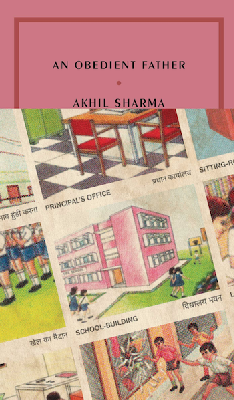
An Obedient Father | Akhil Sharma
BUY BOOK
BUY BOOK
Recommended by Nausicaa Renner
“This book got a lot of press because it’s a rewrite of Sharma’s first novel with the same title. While the process behind the novel is fascinating, the story itself, written in succinct and haunting prose, is disturbing in a slow, beautiful way.”
About the Book
An Obedient Father introduced one of the most admired voices in contemporary fiction. Set in Delhi in the 1990s, it tells the story of an inept bureaucrat enmired in corruption, and of the daughter who alone knows the true depth of his crimes. Decried in India for its frank treatment of child abuse, the novel was widely praised elsewhere for its compassion, and for a plot that mingled the domestic with the political, tragedy with farce. Yet, as Akhil Sharma writes in his foreword to this new edition, he was haunted by what he considered shortcomings within the book: almost twenty years later, he returned to face them. Here is the result, a leaner, surer version with even greater power.

Country Women: A Handbook for the New Farmer | Sherry Thomas & Jeanne Tetrault
BUY BOOK
BUY BOOK
Recommended by Sarah Resnick
“Country Women was published in 1975, at the height of the commune movement in the United States. With beautiful illustrations by Leona Walden, this handbook for the end of the world tells you how to: speed compost, castrate sheep, trim hooves, attend to a goat’s prolapse (!), use a two-women saw, negotiate a land purchase, dig a well, build a fence, skin a lamb, and raise a flock of egg-laying hens, ‘all at the least possible expense and with minimum reliance on outside and professional help.’ At once an artifact for a bygone era and a blueprint for the future.”
About the Book
This classic reference, which has informed two generations of women, is taken from the original homesteading publication Country Women. Written from the perspective of women learning and sharing all manner of farming knowledge on a small scale, it remains an invaluable guide. Encouragement and practical information infuse the reader with a deep respect for the land and personal journal entries throughout inspire a sense of self-sufficiency rooted in the earth. Born of the "back to the land" movement, this handbook chronicles the aspirations of tireless women seeking a new life on small farms around America. Authors Jeanne Tetrault and Sherry Thomas lived this philosophy and lifestyle as they eventually networked with like-minded women to share ideas, stories, and knowledge.
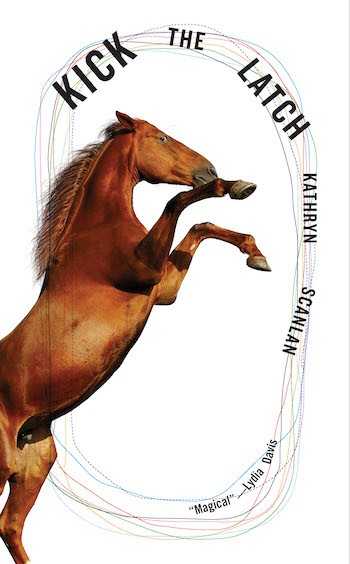
Kick the Latch | Kathryn Scanlan
BUY BOOK
BUY BOOK
Recommended by Bela Shayevich
“I loved Kathryn Scanlan’s Kick The Latch. In short, stylized vignettes, Scanlan tells the story of Sonia, an Iowan horse trainer's career at the track. Based on interviews Scanlan polished and fictionalized, the language is spare, the grit is gritty, the horses are horsey. ‘Fiction’ that’s real.”
About the Book
Kathryn Scanlan's Kick the Latch vividly captures the arc of one woman's life at the racetrack—the flat land and ramshackle backstretch; the bad feelings and friction; the winner's circle and the racetrack bar; the fancy suits and fancy boots; and the "particular language" of “grooms, jockeys, trainers, racing secretaries, stewards, pony people, hotwalkers, everybody”—with economy and integrity.
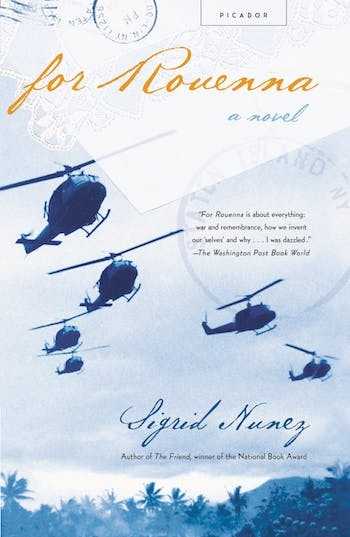
For Rouenna | Sigrid Nunez
BUY BOOK
BUY BOOK
Recommended by Jane Hu
“Nunez's narrator is a writer who encounters the eponymous ‘Rouenna’—a long-forgotten acquaintance from her childhood days growing up in the Staten Island projects, and who has since lived multiple lives as someone who briefly worked in Vietnam as a war nurse. The two women strike an unusual friendship, but early in the novel, Rouenna dies, which leaves the narrator to—what else?—tell her stories. This novel is near impossible to describe in any way that does it justice. So I guess you're just going to have to read it.”
About the Book
For Rouenna is Sigrid Nunez's haunting novel about the poignant and unusual friendship between a writer and a retired army nurse who seeks her out decades after their childhood in the same housing project. Among the letters the narrator receives is one from a Rouenna Zycinski, recalling their old connection and asking if they can meet. Though fascinated by the stories Rouenna tells about her life as a combat nurse in Vietnam, the narrator flatly declines her request that they collaborate on a memoir. It is only later, in the aftermath of Rouenna's shocking death, that the narrator is drawn to write about her friend—and her friend's war. Writing Rouenna's story becomes all-consuming, at once a necessity and the only consolation.
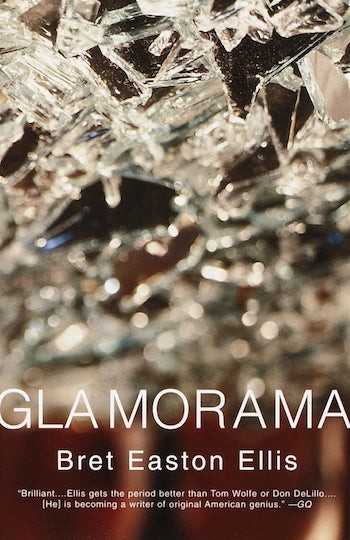
Glamorama | Bret Easton Ellis
BUY BOOK
BUY BOOK
Recommended by Vladimir Sorokin
“The metaphysics of a glamorous world, which quickly grew to attain inhuman scale, are described with fierce intensity and depth. Their substance can be touched and contemplated herein. A powerful and captivating book.”
About the Book
Set in ’90s Manhattan, Victor Ward, a model with perfect abs and all the right friends, is seen and photographed everywhere, even in places he hasn’t been and with people he doesn’t know. He’s living with one beautiful model and having an affair with another on the eve of opening the trendiest nightclub in New York City history. And now it’s time to move to the next stage. But the future he gets is not the one he had in mind.
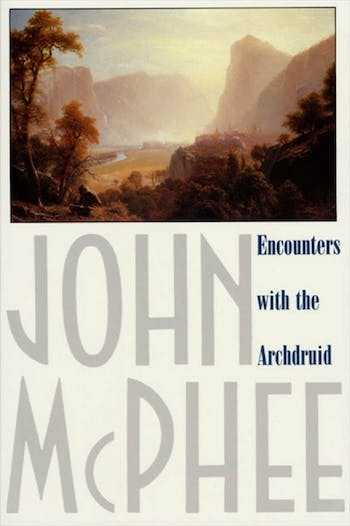
Encounters with the Archdruid | John McPhee
BUY BOOK
BUY BOOK
Recommended by Lisa Borst
“This book is peak McPhee: his primary subject—a dogmatic environmentalist—seems to clearly be the world’s most interesting environmentalist, but then every villainous developer McPhee sets his sights on is also the world’s most interesting villainous developer, every migratory bird is the world’s most interesting migratory bird, every dam is the world’s most interesting dam. Each of these subjects, you eventually realize, has simply had the great fortune of being described by one of the world’s most interesting writers. Plus, you learn a new geological term every few pages.”
About the Book
The narratives in this book are of journeys made in three wildernesses—on a coastal island, in a Western mountain range, and on the Colorado River in the Grand Canyon. The four men portrayed here have different relationships to their environment, and they encounter each other on mountain trails, in forests and rapids, sometimes with reserve, sometimes with friendliness, sometimes fighting hard across a philosophical divide.
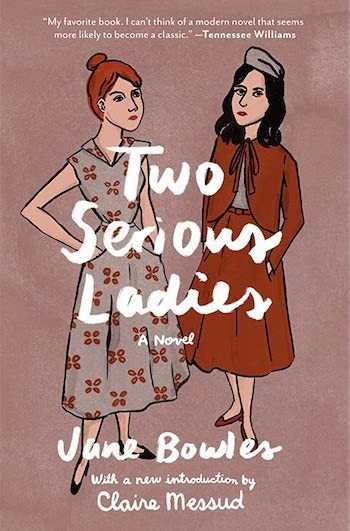
Two Serious Ladies | Janes Bowles
BUY BOOK
BUY BOOK
Recommended by Mark Krotov
“This book stressed me out so much the first time I tried to read it that I put it down for like three years. Why? Because it’s about confused and isolated people making bad choices and committing to them with distressing intensity. Bowles’s genius is to subvert the precise source of my stress—the assumption that very bad things will happen—and instead to lean into the crazy optimism that inevitably undergirds delusion. An unsteady, reckless, rollicking, hilarious, miraculous novel.”
About the Book
Two serious ladies who want to live outside of themselves, Christina Goering and Frieda Copperfield embark on separate quests of salvation. Mrs. Copperfield visits Panama with her husband, where she finds solace among the women who live and work in its brothels. Miss Goering becomes involved with various men. At the end the two women meet again, each transformed by her experience.
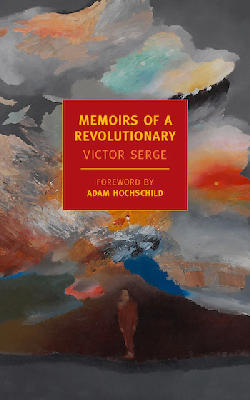
Memoirs of a Revolutionary | Victor Serge
BUY BOOK
BUY BOOK
Recommended by Sophie Pinkham
“Probably the greatest memoir of the Russian revolution. Serge, who was born in Brussels to exiled Narodnik parents and started his career as an anarchist, blends uncompromising political idealism with a novelist’s gift for finding character in a single gesture. Even Lenin starts to feel like a character from Chekhov. Amazingly, despite breaking with every political faction he ever joined, Serge died of natural causes.”
About the Book
Victor Serge is one of the great men of the 20th century—and one of its great writers too. He was an anarchist, an agitator, a revolutionary, an exile, a historian of his times, as well as a brilliant novelist, and in Memoirs of a Revolutionary he devotes all his passion and genius to describing this extraordinary—and exemplary—career. Serge tells of his upbringing among exiles and conspirators, of his involvement with the notorious Bonnot Gang and his years in prison, of his role in the Russian Revolution, and of the Revolution's collapse into despotism and terror. Expelled from the Soviet Union, Serge went to Paris, where he evaded the KGB and the Nazis before fleeing to Mexico. Memoirs of a Revolutionary recounts a thrilling life on the front lines of history and includes vivid portraits not only of Trotsky, Lenin, and Stalin but of countless other figures who struggled to remake the world.
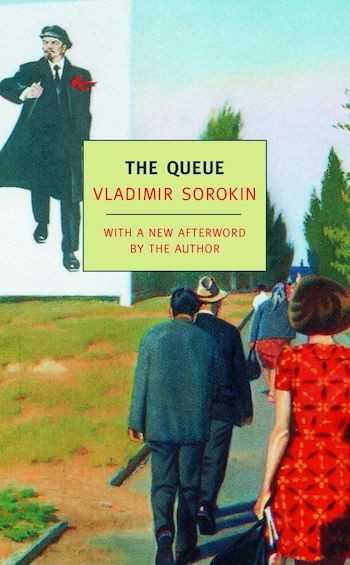
The Queue | Vladimir Sorokin
BUY BOOK
BUY BOOK
Recommended by Jennifer Wilson
“On one of my first visits to Russia, a friend advised me that if I ever got into any kind of dispute with a cashier, it was extremely important I get the people in line on my side. Not long after, I was at an art museum trying to get a refund; it turned out the exhibition I wanted to see was at a different museum. As the cashier was berating me over my error, I started to hear some grumbling behind me: (in Russian) She’s right. It’s not clear. They don’t mark anything properly. It is nice to see a young person taking an interest in art. In the 1970s in the Soviet Union, Vladimir Sorokin was just trying to get a kilo of caviar. When the cashier told him they were only giving out half kilos, someone in line yelled, “Give him a ******* kilo, goddamit!” Sorokin’s first novel, The Queue, about the long lines that defined Brezhnev’s Russia, is a joyful read. I swear! It is full of funny, horny strangers, getting really involved in one another’s lives and complaining about their government. Reading it always leaves me inspired and hopeful, reminded of that day the line helped me get my money back.”
About the Book
Vladimir Sorokin's first published novel, The Queue, is a sly comedy about the late Soviet "years of stagnation." Thousands of citizens are in line for . . . nobody knows quite what, but the rumors are flying. Leather or suede? Jackets, jeans? Turkish, Swedish, maybe even American? It doesn't matter—if anything is on sale, you better line up to buy it. Sorokin's tour de force of ventriloquism and formal daring tells the whole story in snatches of unattributed dialogue, adding up to nothing less than the real voice of the people, overheard on the street as they joke and curse, fall in and out of love, slurp down ice cream or vodka, fill out crossword puzzles, even go to sleep and line up again in the morning as the queue drags on.
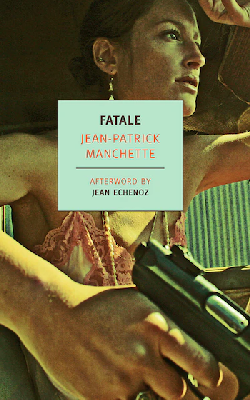
Fatale | Jean-Patrick Manchette
BUY BOOK
BUY BOOK
Recommended by Rachel Kushner
“Fatale is perhaps Manchette’s strangest novel. The female protagonist, Aimée, is a cold directed killer, almost a machine, whose ambition and death drive are perfectly in sync. She’s seen from way outside, in this “behaviorist” account, a technique Manchette claims he learned from Guy de Maupassant. Aimée roves around the blandest of wealthy towns like a robot vacuum cleaner, killing the structurally guilty. At the end, her failure is also, somehow, an exquisite and hallucinogenic triumph.”
About the Book
Whether you call her a coldhearted grifter or the soul of modern capitalism, there's no question that Aimée is a killer and a more than professional one. Now she's set her eyes on a backwater burg—where, while posing as an innocent (albeit drop-dead gorgeous) newcomer to town, she means to sniff out old grudges and engineer new opportunities, deftly playing different people and different interests against each other the better, as always, to make a killing. But then something snaps: the master manipulator falls prey to a pure and wayward passion.

Decadent Editions (series) | Various authors
BUY BOOKS
BUY BOOKS
Recommended by A. S. Hamrah
“These small (4 1/4” x 5 3/4”) elegant (not decadent) books each pair one excellent film critic with a film from the 2000s. The ones I’ve read are Nick Pinkerton on Tsai Ming-Liang’s mournful, crepuscular Goodbye, Dragon Inn; Melissa Anderson on David Lynch’s insane, maligned Inland Empire; and Erika Balsom on James Benning’s expansive, subversive Ten Skies (“a film so peaceful that you wouldn’t think about war,” according to the filmmaker). As with Benning’s film, viewers and readers will hope this compact, well-ordered, somewhat insidious series continues past ten.”
About the Book
The Decadent Editions is a series of 10 books about 10 films, one for every year of the 2000s. Each a deep dive into a single film, the ten book-length essays shift attention away from entrenched classics and the churn of mainstream releases, spotlighting milestones of contemporary cinema. These idiosyncratic studies, by some of today’s most compelling cultural critics, are ambitious and insightful, yet playful and inviting. Together they offer an eclectic view of cinema in the first ten years of the new millennium—a decade now ripe for reappraisal.
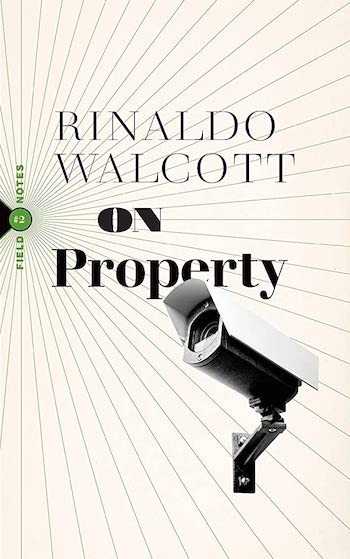
On Property | Rinaldo Walcott
BUY BOOK
BUY BOOK
Recommended by Elias Rodriques
“Written in the style of a pamphlet, Walcott takes among the most radical of approaches to policing and property and rioting. Come for Walcott's description of protests; stay for his vision of the world we have to gain.”
About the Book
That a man can lose his life for passing a fake $20 bill when we know our economies are flush with fake money says something damning about the way we've organized society. Yet the intensity of the calls to abolish the police after George Floyd's death surprised almost everyone. What, exactly, does abolition mean? How did we get here? And what does property have to do with it? In On Property, Rinaldo Walcott explores the long shadow cast by slavery's afterlife and shows how present-day abolitionists continue the work of their forebears in service of an imaginative, creative philosophy that ensures freedom and equality for all.
Thoughtful, wide-ranging, compassionate, and profound, On Property makes an urgent plea for a new ethics of care.
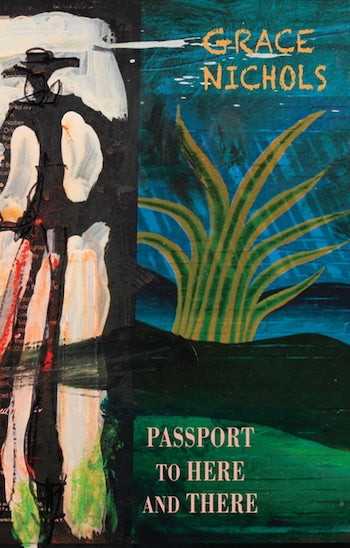
Passport to Here and There | Grace Nichols
BUY BOOK
BUY BOOK
Recommended by Elias Rodriques
“I often read poetry to appreciate the beauty and lucidity that arises from sustained attention to the small scale, and this collection by one of Guyana's leading poets offers much of this. But its sonnet sequence and representation of migration are nothing short of stunning in their achievement, providing new means for thinking about place, race, and more.”
About the Book
In Passport to Here and There, Grace Nichols traces a journey that moves from the coastal memories of a Guyana childhood to life in Britain and her adoptive Sussex landscape. In these movingly redemptive and celebratory poems, she embraces connections and re-connections, with the ability to turn the ordinary into something vivid and memorable whether personal or public, contemporary or historical, most notably in a sonnet-sequence which grew out of a recent return trip to Guyana.
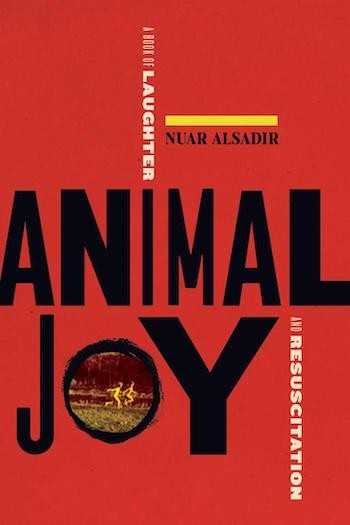
Animal Joy | Nuar Alsadir
BUY BOOK
BUY BOOK
Recommended by Mark Greif
“A psychoanalyst goes to clown school (really) to study the meanings of laughter, but learns more from what her daughters find funny.”
About the Book
Laughter shakes us out of our deadness. An outburst of spontaneous laughter is an eruption from the unconscious that, like political resistance, poetry, or self-revelation, expresses a provocative, impish drive to burst free from external constraints. Taking laughter's revelatory capacity as a starting point, and rooted in Nuar Alsadir's experience as a poet and psychoanalyst, Animal Joy seeks to recover the sensation of being present and embodied. Writing in a poetic, associative style, blending the personal with the theoretical, Alsadir ranges from her experience in clown school, Anna Karenina's morphine addiction, Freud's un-Freudian behaviors, marriage brokers and war brokers, to “Not Jokes,” Abu Ghraib, Frantz's negrophobia, smut, the Brett Kavanaugh hearings, laugh tracks, the problem with adjectives, and how poetry can wake us up. At the center of the book, however, is the author's relationship with her daughters, who erupt into the text like sudden, unexpected laughter. These interventions—frank, tender, and always a challenge to the writer and her thinking—are like tiny revolutions, pointedly showing the dangers of being severed from one's true self and hinting at ways one might be called back to it.
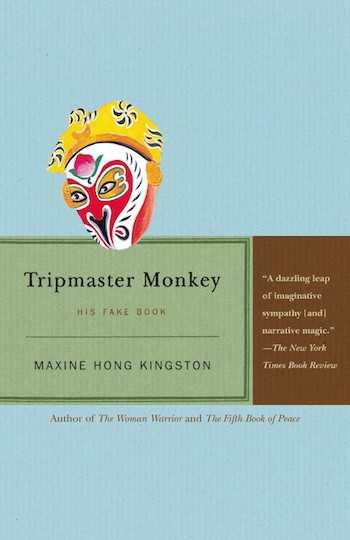
Tripmaster Monkey: His Fake Book | Maxine Hong Kingston
BUY BOOK
BUY BOOK
Recommended by Hua Hsu
“A novel full of luminous passages about partying, scheming, judging and joking, the energy and avarice of youth, as we follow a bristly Chinese American hippy wandering through the Bay Area, holding tight to his dream of writing a play that will bring the Vietnam War—all wars, actually—to an end. He’s written a part for everyone—even you.”
About the Book
Wittman Ah Sing is an unstoppable hipster poet and playwright on the streets of San Francisco, after the Beats have left and before the hippies have arrived. He falls in love with Nancy the Beautiful, marries Tana, and chases his dream to write and stage an epic drama spanning America and China.
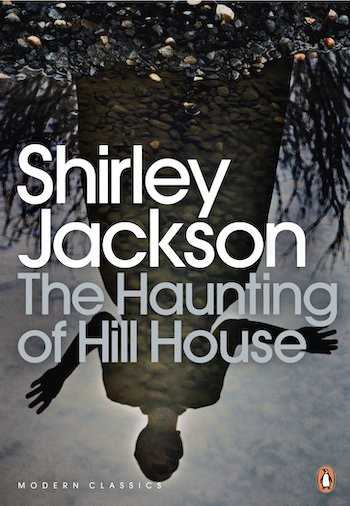
The Haunting of Hill House | Shirley Jackson
BUY BOOK
BUY BOOK
Recommended by Dayna Tortorici
“I genuinely feared at some point that this book would be too scary for me (because it is seriously scary!), but it wasn't, by just a hair. What saved it was its dialogue, which is truly funny and smart, more reminiscent of Dawn Powell or Iris Murdoch than your standard genre fiction. Read it after We Have Always Lived in the Castle if you want a less-spooky entry to the Jackson universe.”
About the Book
First published in 1959, Shirley Jackson's The Haunting of Hill House has been hailed as a perfect work of unnerving terror. It is the story of four seekers who arrive at a notoriously unfriendly pile called Hill House: Dr. Montague, an occult scholar looking for solid evidence of a haunting; Theodora, his lighthearted assistant; Eleanor, a friendless, fragile young woman well acquainted with poltergeists; and Luke, the future heir of Hill House. At first, their stay seems destined to be merely a spooky encounter with inexplicable phenomena. But Hill House is gathering its powers—and soon it will choose one of them to make its own.
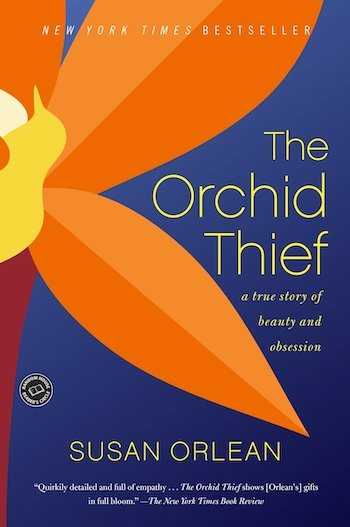
The Orchid Thief | Susan Orlean
BUY BOOK
BUY BOOK
Recommended by Nicole Lipman
“Who knew flowers could be so thrilling?! Maybe you’ve seen Adaptation but never read the source text. Almost miraculously, the true John Laroche story is just as bizarre and electrifying as Charlie Kaufman’s fictionalized version.”
About the Book
A modern classic of personal journalism, The Orchid Thief is Susan Orlean’s wickedly funny, elegant, and captivating tale of an amazing obsession. Determined to clone an endangered flower—the rare ghost orchid Polyrrhiza lindenii—a deeply eccentric and oddly attractive man named John Laroche leads Orlean on an unforgettable tour of America’s strange flower-selling subculture, through Florida’s swamps and beyond, along with the Seminoles who help him and the forces of justice who fight him. In the end, Orlean—and the reader—will have more respect for underdog determination and a powerful new definition of passion.
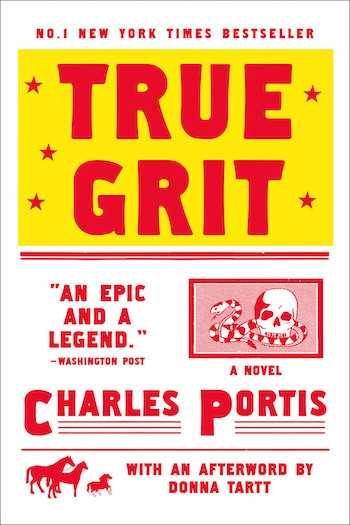
True Grit | Charles Portis
BUY BOOK
BUY BOOK
Recommended by Lisa Borst
“After the collected works of novelist Charles Portis were reissued recently, I spent a few months blasting through his ruthlessly funny fiction: the picaresque-ish Gringos, the deadpan road novel Dog of the South, the even deadpan-er road novel Norwood. But it was True Grit, his riveting tween-narrated western, that really cemented my status as a Portishead. The narrative voice of its plucky and hugely charming protagonist, Mattie—both goofy and biblically vengeful, and constantly placing things in arch quotation marks—grounds the novel in comedy, but it’s her avuncular hired-gun-turned-friend, a grouchy US marshal named Rooster (every Portis character has a name like Rooster), who ultimately steals the show. Portisheads unite!”
About the Book
True Grit tells the story of Mattie Ross, who is just fourteen when the coward Tom Chaney shoots her father down in Fort Smith, Arkansas, and robs him of his life, his horse, and $150 cash. Filled with an unwavering urge to avenge her father’s blood, Mattie finds and, after some tenacious finagling, enlists one-eyed Rooster Cogburn, the meanest available U.S. Marshal, as her partner in pursuit, and they head off into Indian Territory after the killer.
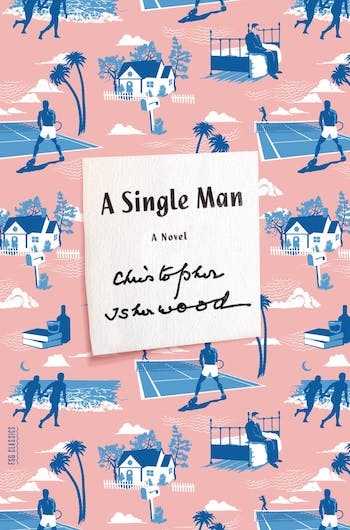
A Single Man | Christopher Isherwood
BUY BOOK
BUY BOOK
Recommended by Dayna Tortorici
“Secretly one of the best novels ever written about Los Angeles, not only for its perfect description of dissociating while driving on the freeway.”
About the Book
Welcome to sunny suburban 1960s Southern California. George is a gay middle-aged English professor, adjusting to solitude after the tragic death of his young partner. He is determined to persist in the routines of his former life. A Single Man follows him over the course of an ordinary twenty-four hours. Behind his British reserve, tides of grief, rage, and loneliness surge—but what is revealed is a man who loves being alive despite all the everyday injustices.
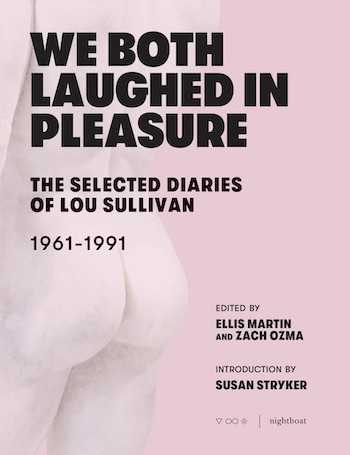
We Both Laughed in Pleasure: The Selected Diaries of Lou Sullivan | Lou Sullivan
BUY BOOK
BUY BOOK
Recommended by Nicole Lipman
“Lou Sullivan's diaries are remarkable: intimate, vibrant, and often wildy sexual entries chronicling his entire life. We start in Sullivan's early childhood (and his all-consuming Beatles-obsession!) and proceed through his career as a gay trans activist, writer, and community leader, up to his death in 1991. Come for the history, but stay for the voice: what a treat to spend three decades with someone as funny and complex—and very, very horny—as Lou.”
About the Book
We Both Laughed In Pleasure: The Selected Diaries of Lou Sullivan narrates the inner life of a gay man moving through the shifting social, political, and medical mores of the second half of the 20th century. Sullivan kept comprehensive journals from age 11 until his AIDS-related death at 39. Sensual, lascivious, challenging, quotidian and poetic, the diaries complicate and disrupt normative trans narratives. Entries from twenty-four diaries reveal Sullivan's self-articulation and the complexity of a fascinating and courageous figure.
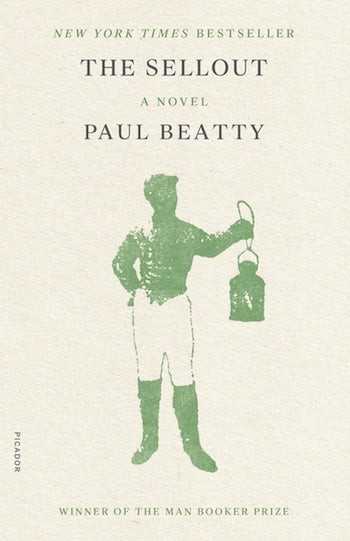
The Sellout | Paul Beatty
BUY BOOK
BUY BOOK
Recommended by Mark Krotov
“The Sellout won the Booker Prize and thus doesn’t need my help. Is ‘no one is talking about this’ an inherently solipsistic thing to say? Surely lots of people are still talking about The Sellout! Still, the funniest novel of the 21st century deserves to be talked about ad nauseam, pontificated to death, cited to the point of cliché, like Rachel Cusk’s Outline Trilogy. Instead it seems to exist apart from its contemporaries, like many of the novels Beatty draws from in Hark, his essential anthology of African-American humor writing. I’m sure there are many reasons for this, but no serious discussion of recent American fiction can or should avoid this wild and liberated novel.”
About the Book
Born in the agrarian ghetto of Dickens—on the southern outskirts of Los Angeles—the narrator of The Sellout resigns himself to the fate of lower-middle-class Californians: I'd die in the same bedroom I'd grown up in, looking up at the cracks in the stucco ceiling that've been there since '68 quake. Raised by a single father, a controversial sociologist, he spent his childhood as the subject in racially charged psychological studies. He is led to believe that his father's pioneering work will result in a memoir that will solve his family's financial woes. But when his father is killed in a police shoot-out, he realizes there never was a memoir. All that's left is the bill for a drive-thru funeral.
Fuelled by this deceit and the general disrepair of his hometown, the narrator sets out to right another wrong: Dickens has literally been removed from the map to save California from further embarrassment. Enlisting the help of the town's most famous resident—the last surviving Little Rascal, Hominy Jenkins—he initiates the most outrageous action conceivable: reinstating slavery and segregating the local high school, which lands him in the Supreme Court.
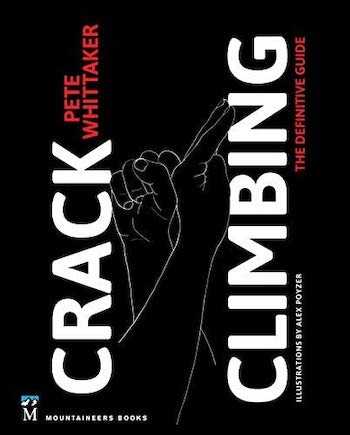
Crack Climbing: The Definitive Guide | Pete Whittaker
BUY BOOK
BUY BOOK
Recommended by Charles Petersen
“Is there anything more utopian than climbing? In Plato's Symposium, Aristophanes recounts the comic origins of eros: humans were born as creatures with four arms, four legs, and two heads, powerful siamese twins who could roll swiftly around the earth, and even summit Mount Olympus—climbing threatened the gods themselves. To put us in our place, Hephaestus split these our ancestors in two, leaving us to languish in our sublunary existence. One way to solve the riddle of our lost power is to find your other half, summiting the heights of utopia through the ladder of love of Platonic intercourse, that is, conversation—or just by having sex. Alternatively, you can reach for the skies with your own four limbs. But if in the past decade climbing has effectively become the new golf for yuppies by the millions, filling urban climbing gyms to the rafters in every gentrified neighborhood across America, crack climbing is still the only way to get more than a hundred feet or so off the ground. Most climbing today, whether in the gym at the crag, is a pleasant enough kind of physical problem solving, a cross-word puzzle for the flesh, with guidebooks and grading systems allowing you to choose something just hard enough to be interesting, nicely al dente. Crack climbing, the original and now largely forgotten child of the discipline, remains both blessed and cursed by our original sin, the ambition to reach the skies. Like Eve in the Bible, you will only summit this mountain in pain. With over 300 pages of closely reasoned text and hilariously detailed illustration, Pete Whittaker is your mountain doula. You hate him but you can't believe anyone ever just stuck their hand in a crack and figured this out on their own.”
About the Book
Crack climbing is a highly technical form of movement in which climbers position their hands, feet, and even their entire body in cracks to make upward progress on rock. An advocate for the sport's aesthetic lines, physicality, and technical know-how, author Pete Whittaker teaches more than sixty Crack School Masterclasses each year and was featured in the popular climbing film Wide Boyz.
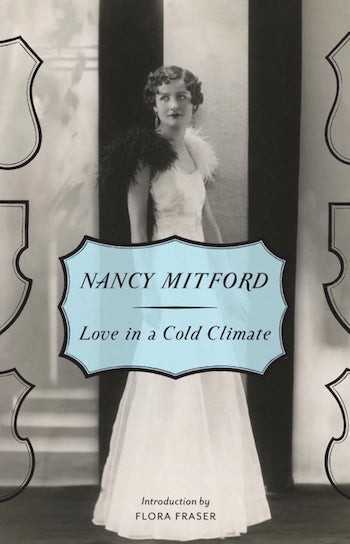
Love in a Cold Climate | Nancy Mitford
BUY BOOK
BUY BOOK
Recommended by Ari M. Brostoff
“In Nancy Mitford's Love in a Cold Climate, a decayed British upper class finds itself alarmed at its inability to reproduce. There's only one person who can set things right: a gleefully competent Type A twink. Despite its chilly title, Love in a Cold Climate is an ideal book to read at a summer house, where you can entertain your fellow guests by updating them with Mitford's little scandals—the sheer oddness of which give away the book's status as roman a clef—like updates from a Twitter scroll.”
About the Book
Polly Hampton has long been groomed for the perfect marriage by her mother, the fearsome and ambitious Lady Montdore. But Polly, with her stunning good looks and impeccable connections, is bored by the monotony of her glittering debut season in London. Having just come from India, where her father served as Viceroy, she claims to have hoped that society in a colder climate would be less obsessed with love affairs.
The apparently aloof and indifferent Polly has a long-held secret, however, one that leads to the shattering of her mother's dreams and her own disinheritance. When an elderly duke begins pursuing the disgraced Polly and a callow potential heir curries favor with her parents, nothing goes as expected, but in the end all find happiness in their own unconventional ways.
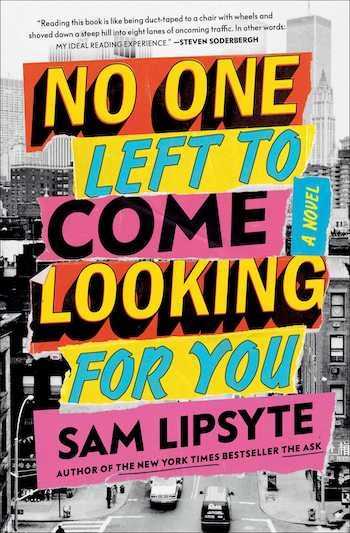
No One Left to Come Looking for You | Sam Lipsyte
BUY BOOK
BUY BOOK
Recommended by Lisa Borst
“Sam Lipsyte's forthcoming novel is a whodunnit about punk musicians (an extremely promising genre that I hope will take off), and it operates like a good punk song: short, a little chaotic, angry in all the right directions. As in all of his fiction, Lipsyte finds an endless well of humor in his characters' slightly loserish qualities: at one point his narrator, a musician named Jack ****, reflects on his own songwriting style: ‘Protest songs are not my strong suit. I may not have a strong suit.’”
About the Book
Manhattan's East Village, 1993. Dive bars, DIY music venues, shady weirdos, and hard drugs are plentiful. Crime is high but rent is low, luring hopeful, creative kids from sleepy suburbs around the country.
One of these is Jack S., a young New Jersey rock musician. Just a few days before his band's biggest gig, their lead singer goes missing with Jack's prized bass, presumably to hock it to feed his junk habit. Jack's search for his buddy uncovers a sinister entanglement of crimes tied to local real estate barons looking to remake New York City—and who might also be connected to the recent death of Jack's punk rock mentor. Along the way, Jack encounters a cast of colorful characters, including a bewitching, quick-witted scenester who favors dressing in a nurse's outfit, a monstrous hired killer with a devotion to both figure skating and edged weapons, a deranged if prophetic postwar novelist, and a tough-talking cop who fancies himself a retro-cool icon of the homicide squad but is harboring a surprising secret.
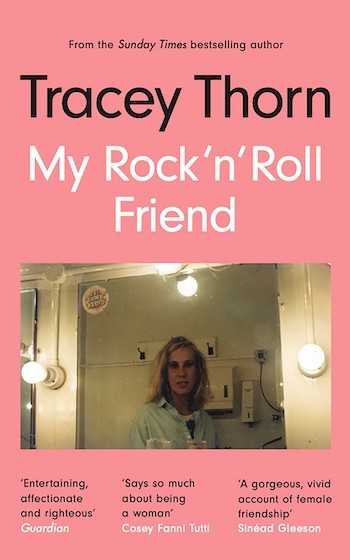
My Rock 'n' Roll Friend | Tracey Thorn
BUY BOOK
BUY BOOK
Recommended by Hua Hsu
“Friendship is as much about knowing someone intimately as projecting all sorts of wildness onto them. Tracey Thorn is a member of some of my favorite bands (Marine Girls, Everything but the Girl) but also one of my favorite music writers. Her latest book is about her decades-long friendship with Lindy Morrison, the oft-overlooked drummer of the Go-Betweens. Perhaps they were once drawn to each other as the only women in the dressing room backstage at a gig. But something enduring and complex sprung out of that moment. It’s part-memoir, part biography of her friend, part history of ’80s indie music. Most of all, Thorn vividly conveys what it felt to be women in a scene dominated by men, her awe at watching her friend Lindy’s rise, how it once was that we learned to dream through those closest to us.”
About the Book
In 1983, backstage at the Lyceum in London, Tracey Thorn and Lindy Morrison first met. Tracey's music career was just beginning, while Lindy, drummer for The Go-Betweens, was ten years her senior. They became confidantes, comrades and best friends, a relationship cemented by gossip and feminism, books and gigs and rock 'n' roll love affairs. Morrison—a headstrong heroine blazing her way through a male-dominated industry—came to be a kind of mentor to Thorn. They shared the joy and the struggle of being women in a band, trying to outwit and face down a chauvinist music media. In My Rock 'n' Roll Friend Thorn takes stock of thirty-seven years of friendship, teasing out the details of connection and affection between two women who seem to be either complete opposites or mirror images of each other. This important book asks what people see, who does the looking, and ultimately who writes women out of—and back into—history.
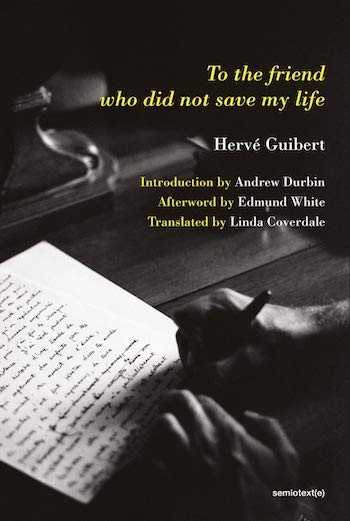
To the Friend Who Did Not Save My Life | Hervé Guibert
BUY BOOK
BUY BOOK
Recommended by Clare Fentress
“If the title of this electrifying and brutal book doesn't grab hold of your attention immediately, try this sentence from the end of one its vignette-like chapters. Guilbert is describing the handsome junkie Ranieri, who, like him, is visiting a Roman clinic to pick up his AZT, which has just become available in Europe. It's a perfect summary of the experience of reading Guilbert himself: ‘I saw him rip off his bandage as he passed a trash basket. There was a marvelous energy in his step; I hesitated to make a move, and watched him disappear.’”
About the Book
First published by Gallimard in 1990, To the Friend Who Did Not Save My Life describes, with devastating, darkly comic clarity, its narrator's experience of being diagnosed with AIDS. Guibert chronicles three months in the penultimate year of the narrator's life as, in the wake of his friend Muzil's death, he goes from one quack doctor to another, describing the progression of the disease and recording the reactions of his many friends.

Drugs Are Nice | Lisa Carver
BUY BOOK
BUY BOOK
Recommended by Lisa Borst
“An extremely lively, bittersweet, sometimes shocking account of a ’90s underground punk scene by the great Lisa Carver: editor, noise musician, icon of American raunch, and memoirist many times over. You watch the DIY sensibility that defined Gen X's most productive decade rise and fall: zines are founded, tapes are traded, Bill Callahan appears briefly among a parade of bad boyfriends. Then the internet comes along and gentrifies all of it.”
About the Book
In this eye-opening memoir, Lisa Crystal Carver recalls her extraordinary youth and charts the late-80s, early-90s punk subculture that she helped shape. She recounts how her band Suckdog was born in 1987 and the wild events that followed: leaving small-town New Hampshire to tour Europe at 18, becoming a teen publisher of fanzines, a teen bride, and a teen prostitute. Spin has called Suckdog’s album Drugs Are Nice one of the best of the ’90s, and the book includes photos of infamous European shows. Yet the book also tells of how Lisa saw the need for change in 1994, when her baby was born with a chromosomal deletion and his father became violent. With lasting lightness and surprising gravity, Drugs Are Nice is a definitive account of the generation that wanted to break every rule, but also a story of an artist and a mother becoming an adult on her own terms.
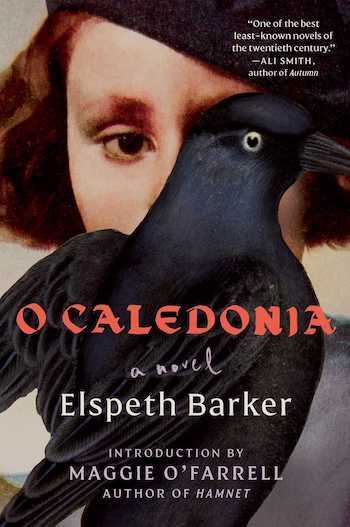
O Caledonia | Elspeth Barker
BUY BOOK
BUY BOOK
Recommended by Molly Young
“Is this the only coming-of-age novel in history to start with the coming-of-agee dead on a staircase? Janet is 16 when she is murdered in her family’s damp Scottish castle. Unlike many books that begin with a corpse, this is not a mystery—don’t worry, the question of HOW Janet gets killed is answered, but the main attraction is the black comedy of WHY. There is simply no justice in the world for a prickly teenage girl who hates her family and hallucinates witches and loves reading Greek and inhaling the scent of pine trees.”
About the Book
Immersed in a world of isolation and loneliness, Barker’s ill-fated young heroine Janet turns to literature, nature, and her Aunt Lila, who offers brief flashes of respite in an otherwise foreboding life. People, birds, and beasts move through the background in a tale that is as rich and atmospheric as it is witty and mordant. The family’s motto—Moriens sed Invictus (Dying but Unconquered)—is a well-suited epitaph for wild and courageous Janet, whose fierce determination to remain steadfastly herself makes her one of the most unforgettable protagonists in contemporary literature.
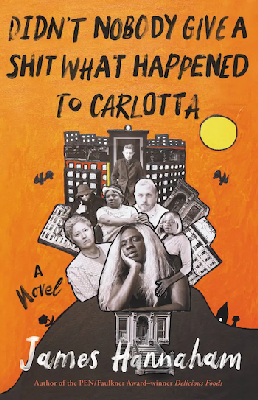
Didn't Nobody Give a **** What Happened to Carlotta | James Hannaham
BUY BOOK
BUY BOOK
Recommended by Rachel Ossip
“It’s Fourth of July weekend, and Carlotta is back in Brooklyn after twenty years in prison. Among the chaos of family parties and the stress of introducing everyone to her updated, fabulously femme self, Carlotta must also navigate the endless hurdles of parole and the astonishing changes to the city. A contemporary reimagining of the epic journey (with nods to The Odyssey and Ulysses), Carlotta follows the titular character as she traverses south Brooklyn and comments—by interrupting the narrator in mid-sentence—on gentrification, over-priced grapes, gender transition, job interviews, injustice, extremely expensive shoes, incarceration, old friends, and what it might mean to be free.”
About the Book
Carlotta Mercedes has been misunderstood her entire life. When she was pulled into a robbery gone wrong, she still went by the name she'd grown up with in Fort Greene, Brooklyn—before it gentrified. But not long after her conviction, she took the name Carlotta and began to live as a woman, an embrace of selfhood that prison authorities rejected, keeping Carlotta trapped in an all-male cell block, abused by both inmates and guards, and often placed in solitary. In her fifth appearance before the parole board, Carlotta is at last granted conditional freedom and returns to a much-changed New York City. Over a whirlwind Fourth of July weekend, she struggles to reconcile with the son she left behind, to reunite with a family reluctant to accept her true identity, and to avoid any minor parole infraction that might get her consigned back to lockup.
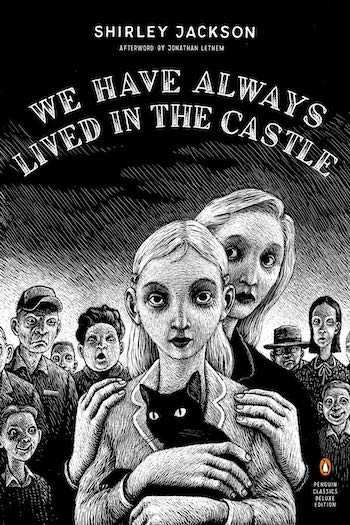
We Have Always Lived in the Castle | Shirley Jackson
BUY BOOK
BUY BOOK
Recommended by Dayna Tortorici
“I long avoided reading Shirley Jackson after being traumatized by ‘The Lottery’ as a middle school student, but I recently came around and I'm so glad I did. We Have Always Lived in the Castle is psychological ghost fiction in the vein of Turn of the Screw, but with an intimate—you might say agoraphobic—attention to home life you're more likely to find in Wharton than in James. Add a feral teen narrator whose voice mirrors her kooky cognition and you get Castle. Jackson played up the haunted aspects of the domestic realm—housework, neighbors, errands that require you to cross the street to avoid a group of men on the corner—and created something genius. This book is not scary, but it is very spooky. ”
About the Book
Taking readers deep into a labyrinth of dark neurosis, We Have Always Lived in the Castle is a deliciously unsettling novel about a perverse, isolated, and possibly murderous family and the struggle that ensues when a cousin arrives at their estate.
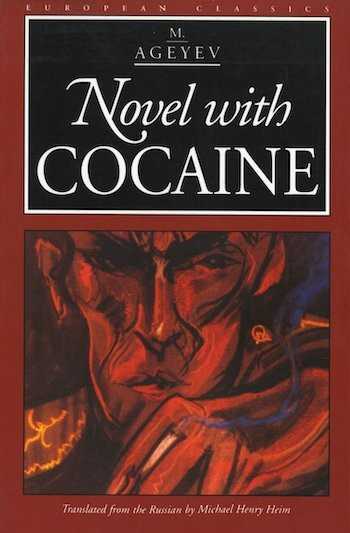
Novel with Cocaine | M. Ageyev
BUY BOOK
BUY BOOK
Recommended by Lisa Borst
“Novel With Cocaine was written under a penname and, though it was once falsely attributed to Nabokov, its authorship remains unknown. You can kind of see why its author might not want to show their face: this book is ******* bleak! It sticks close to its truly loathsome narrator, who’s so consumed by drugs and sex that he neglects his friends, his heartbreakingly forgiving mother, and, finally, the entire force of history (the book is set in Moscow in 1917 but only glancingly hints at the revolution). What's compelling about the novel is that it has all the trappings of a morality tale but is ultimately so ludicrously brutal that it transcends the genre entirely, a feat.”
About the Book
A Dostoevskian psychological novel of ideas, Novel with Cocaine explores the interaction between psychology, philosophy, and ideology in its frank portrayal of an adolescent's cocaine addiction. The story relates the formative experiences of Vadim at school and with women before he turns to drug abuse and the philosophical reflections to which it gives rise.
Make a Quiz
It's free to start.
It's free to start.